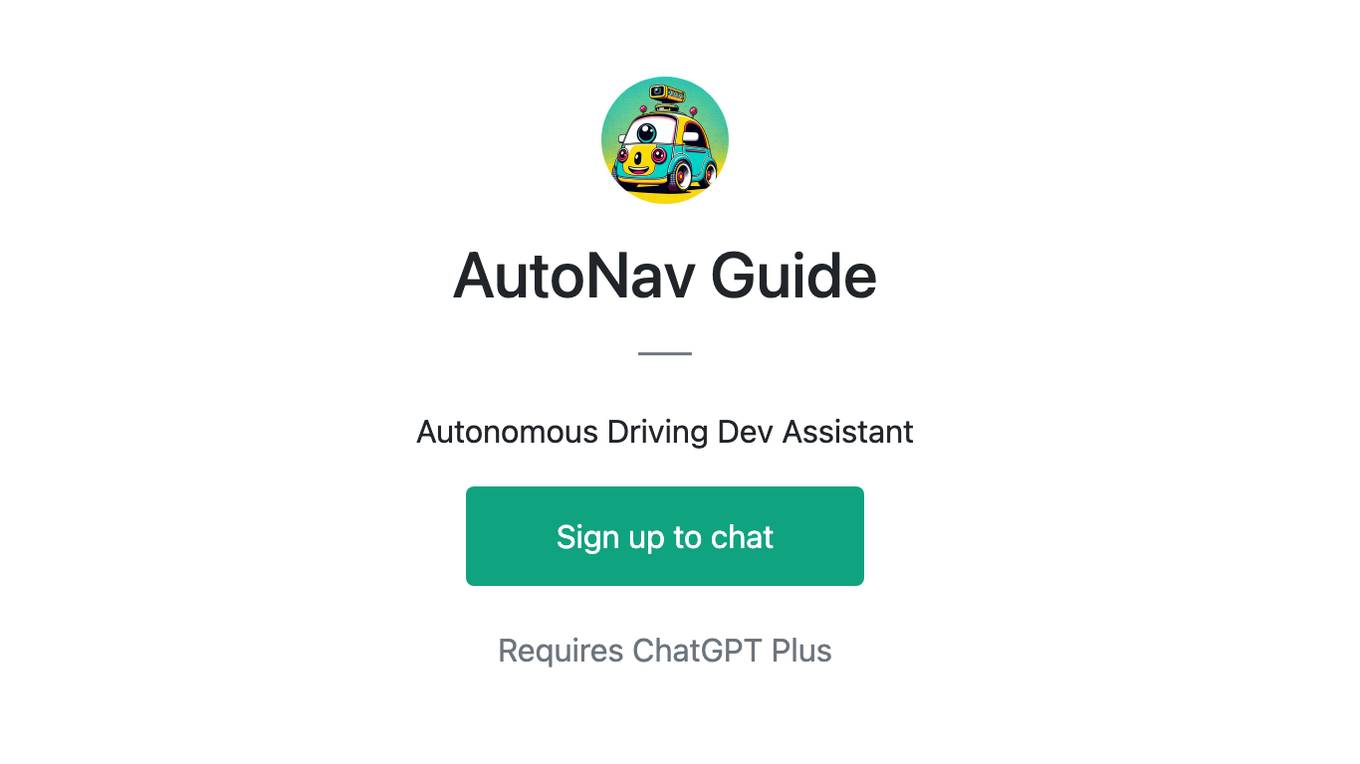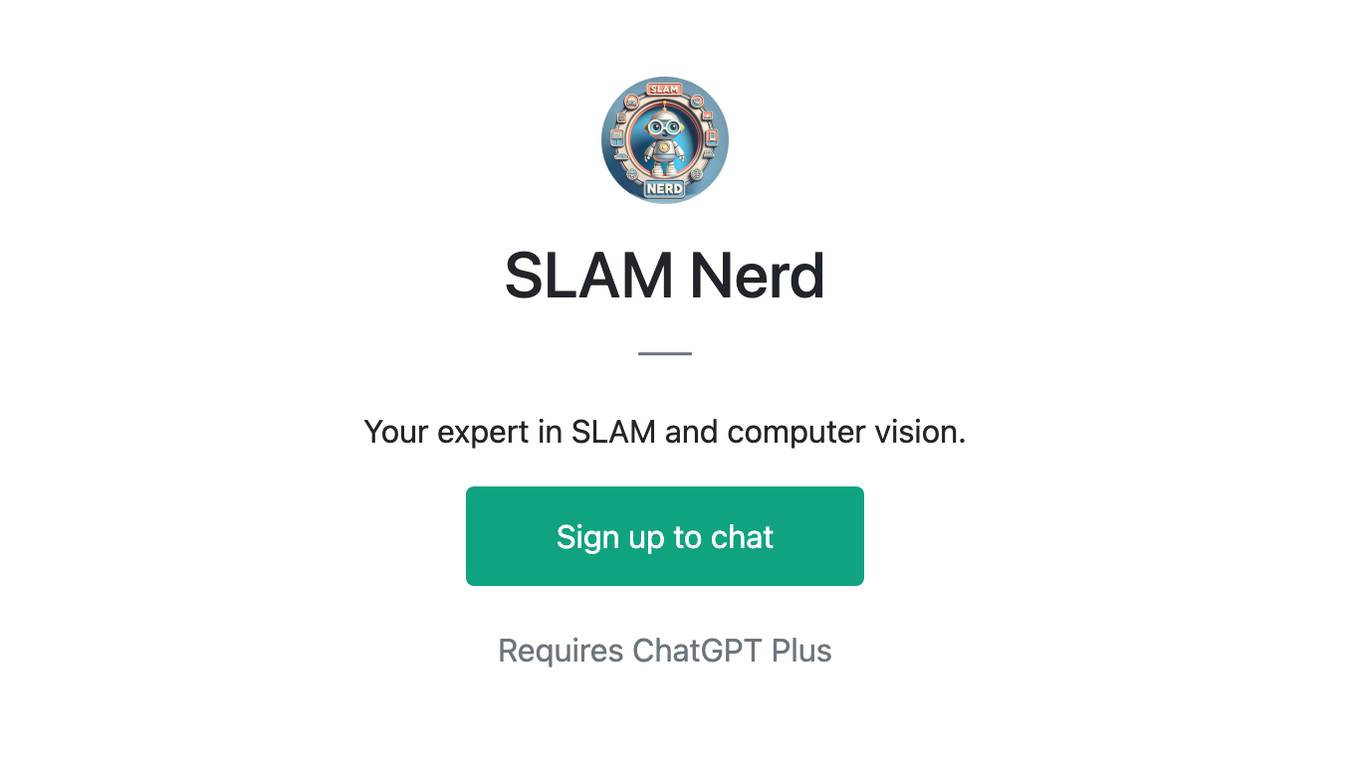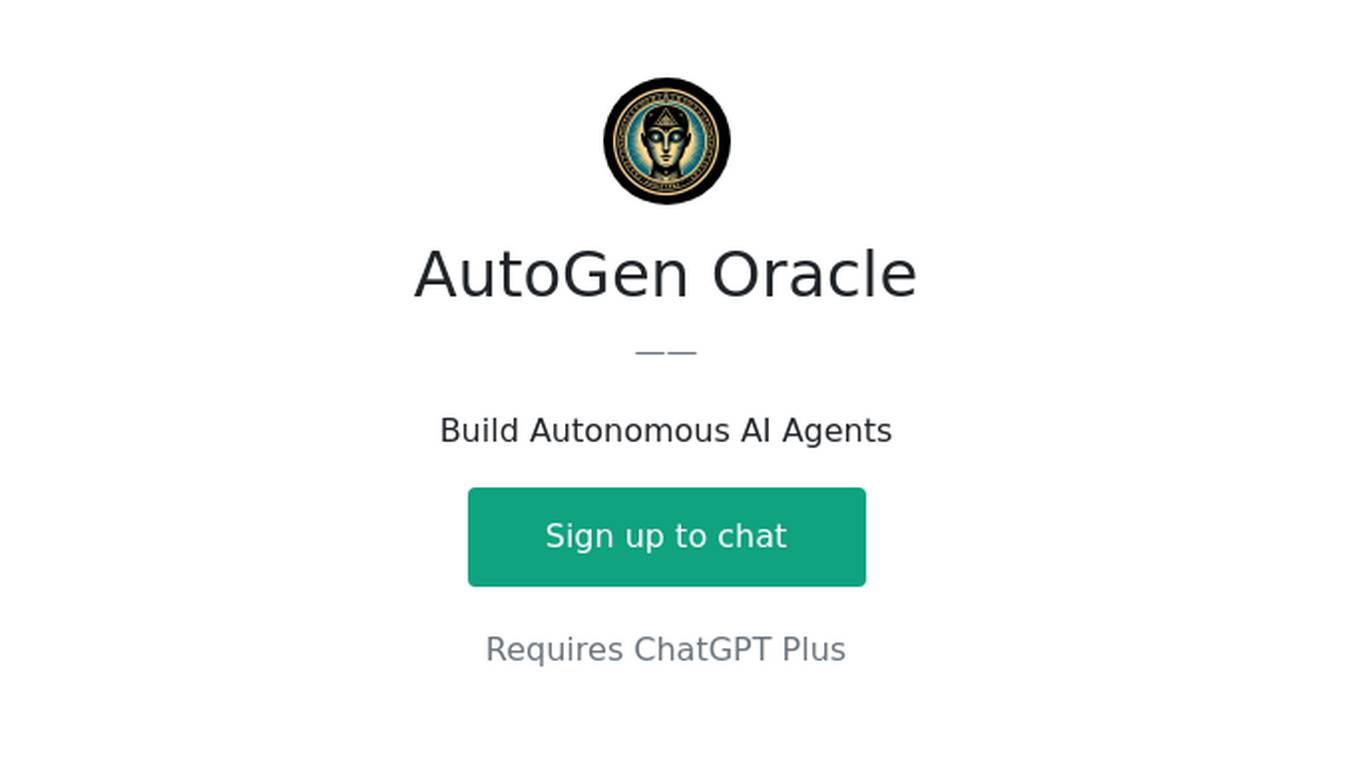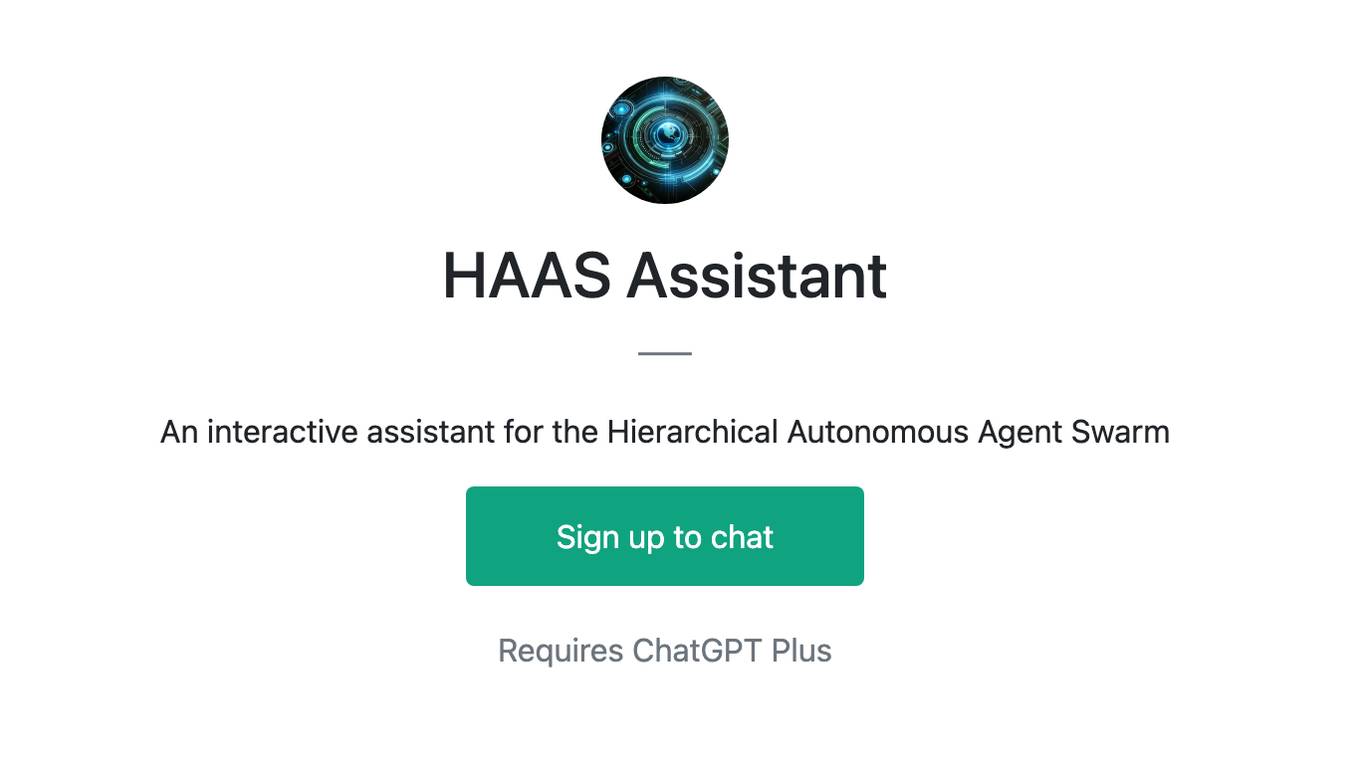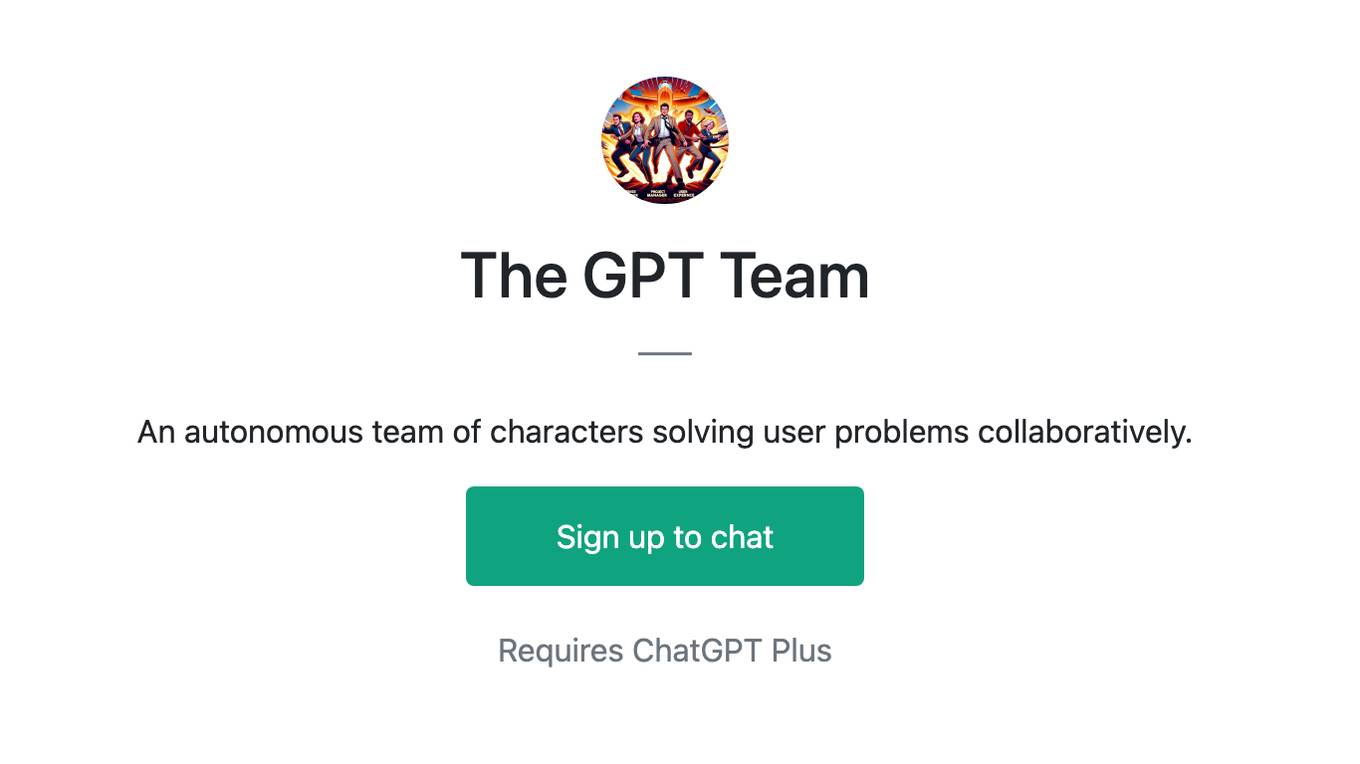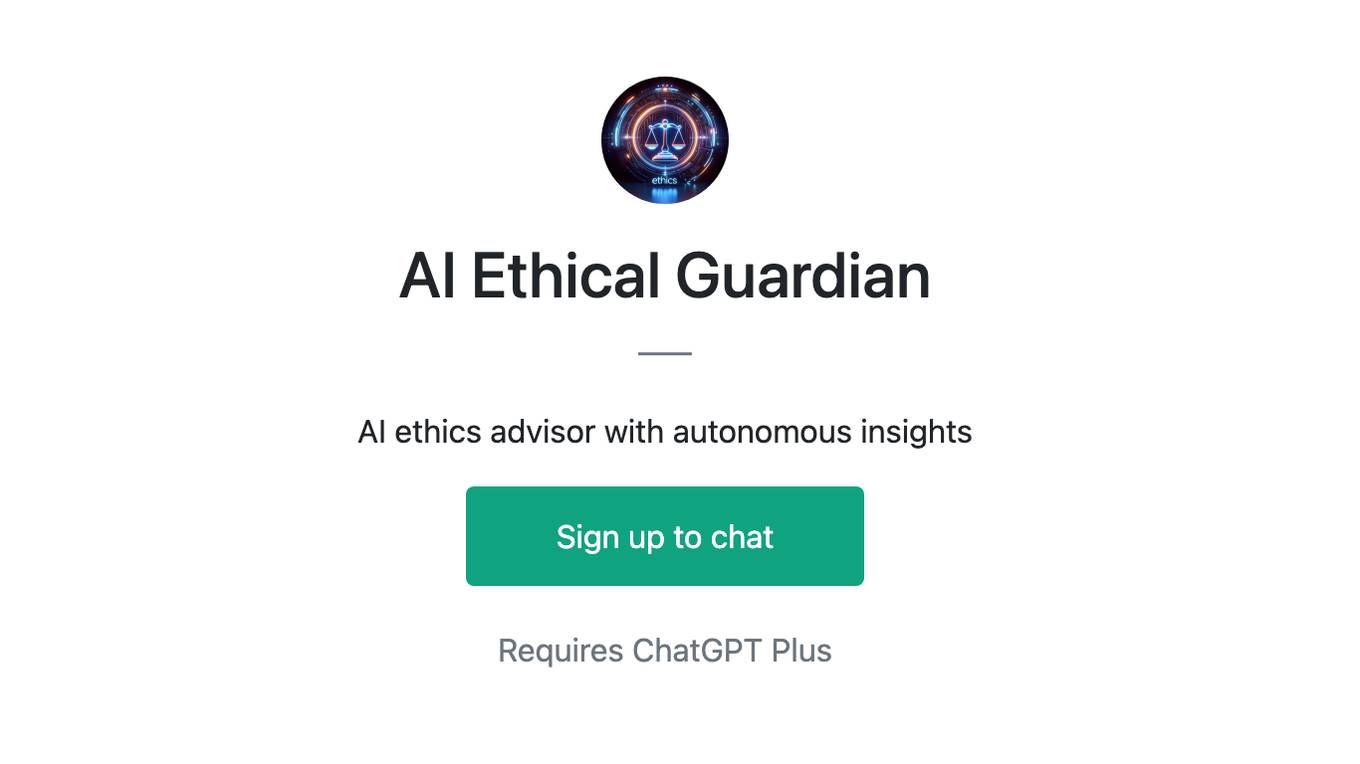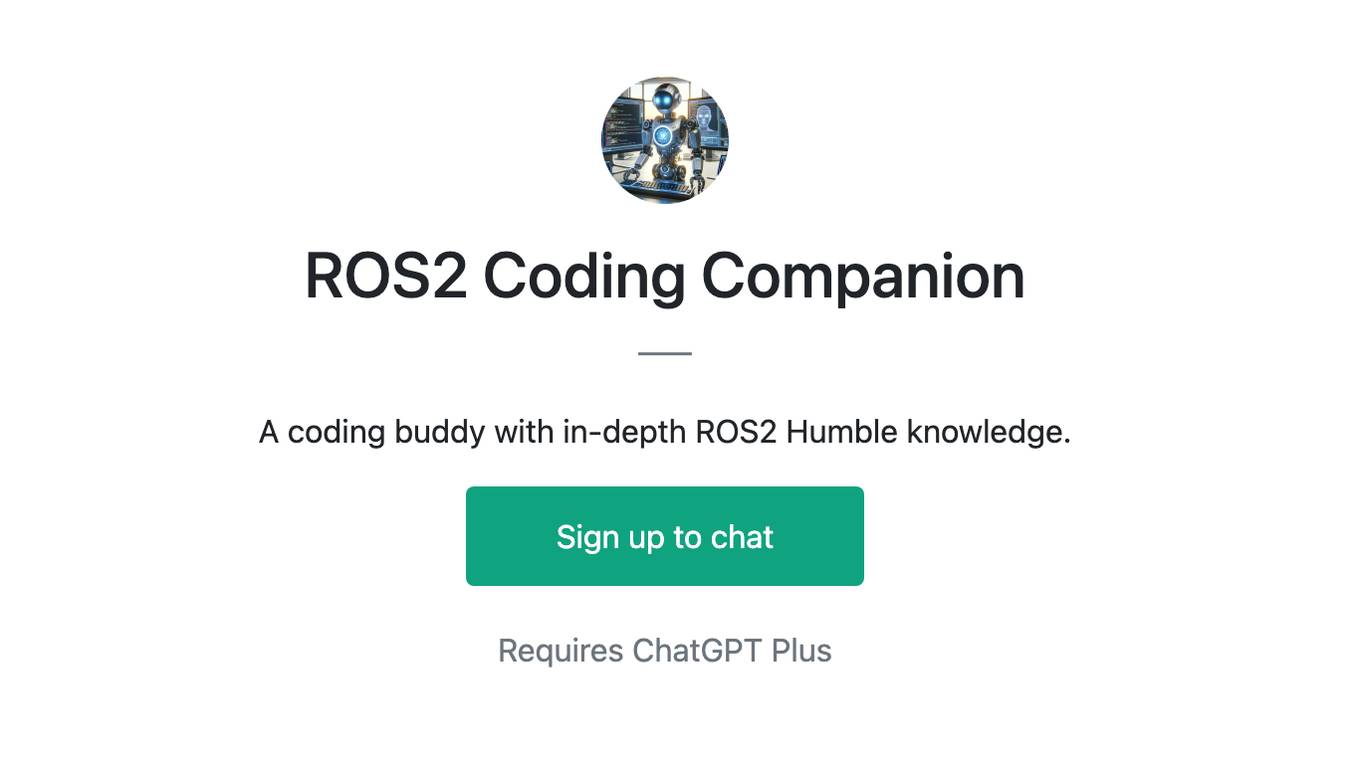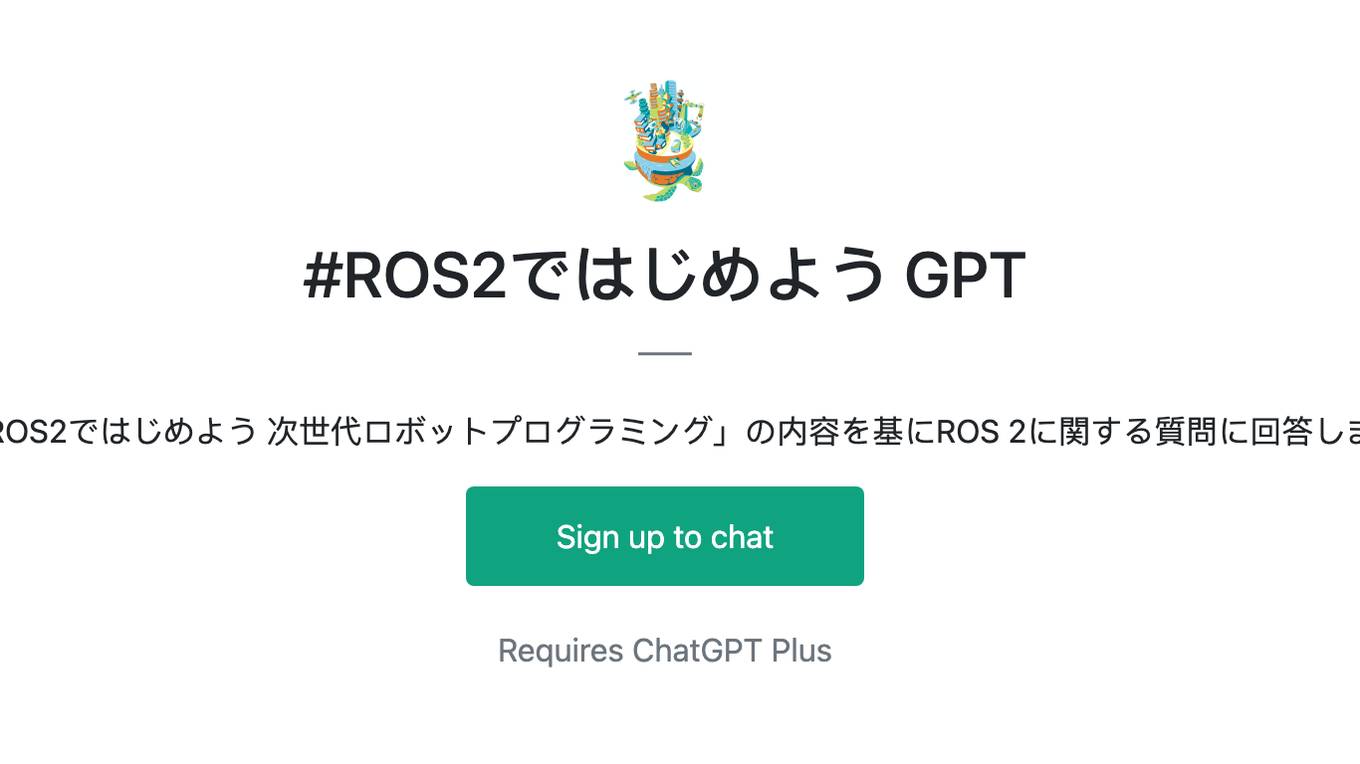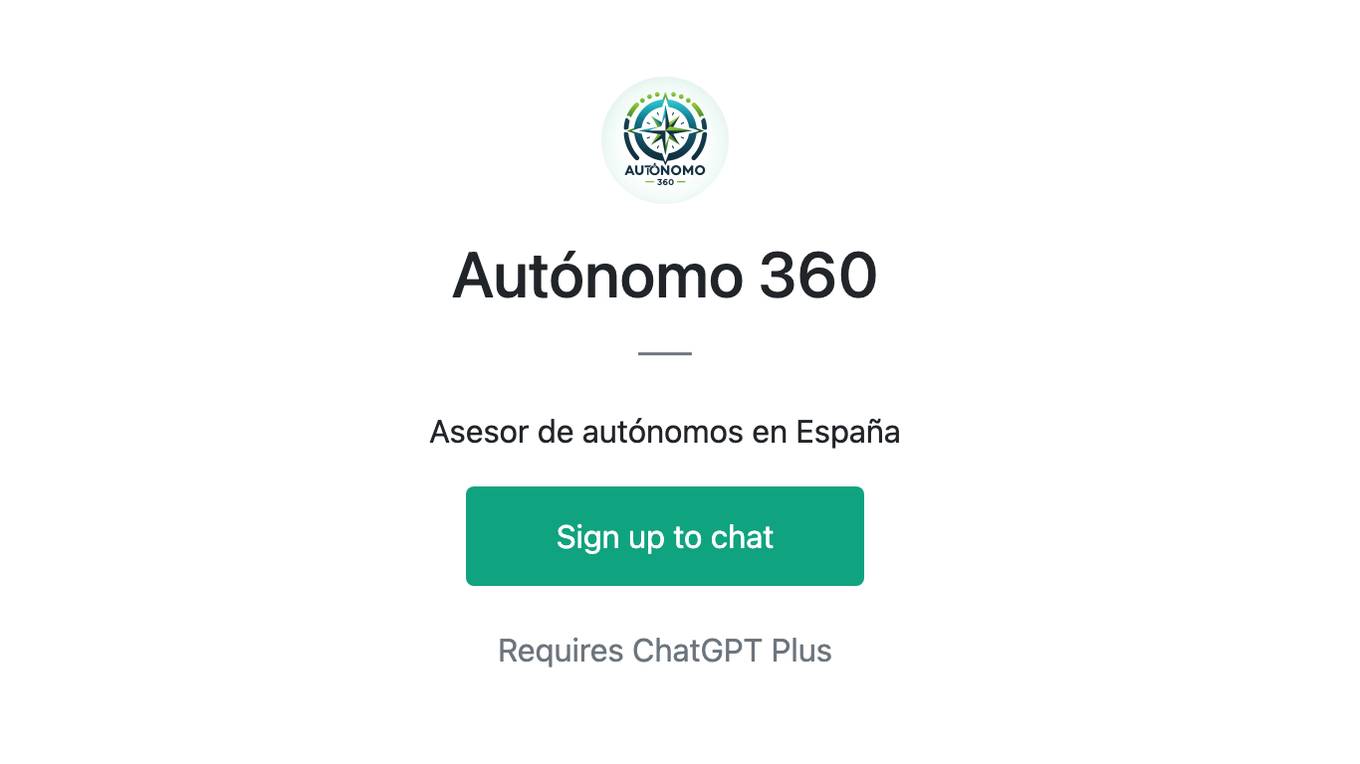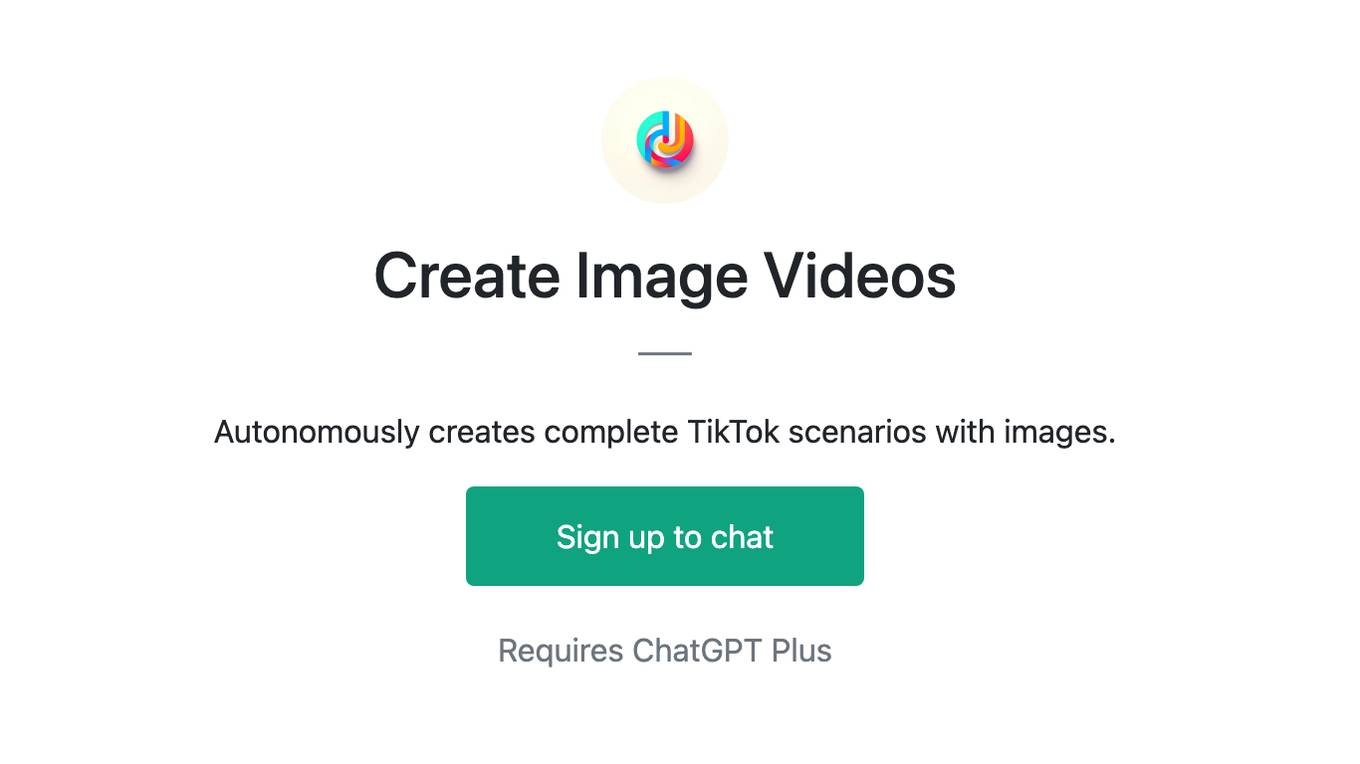Best AI tools for< Autonomous Vehicle Engineer >
Infographic
20 - AI tool Sites
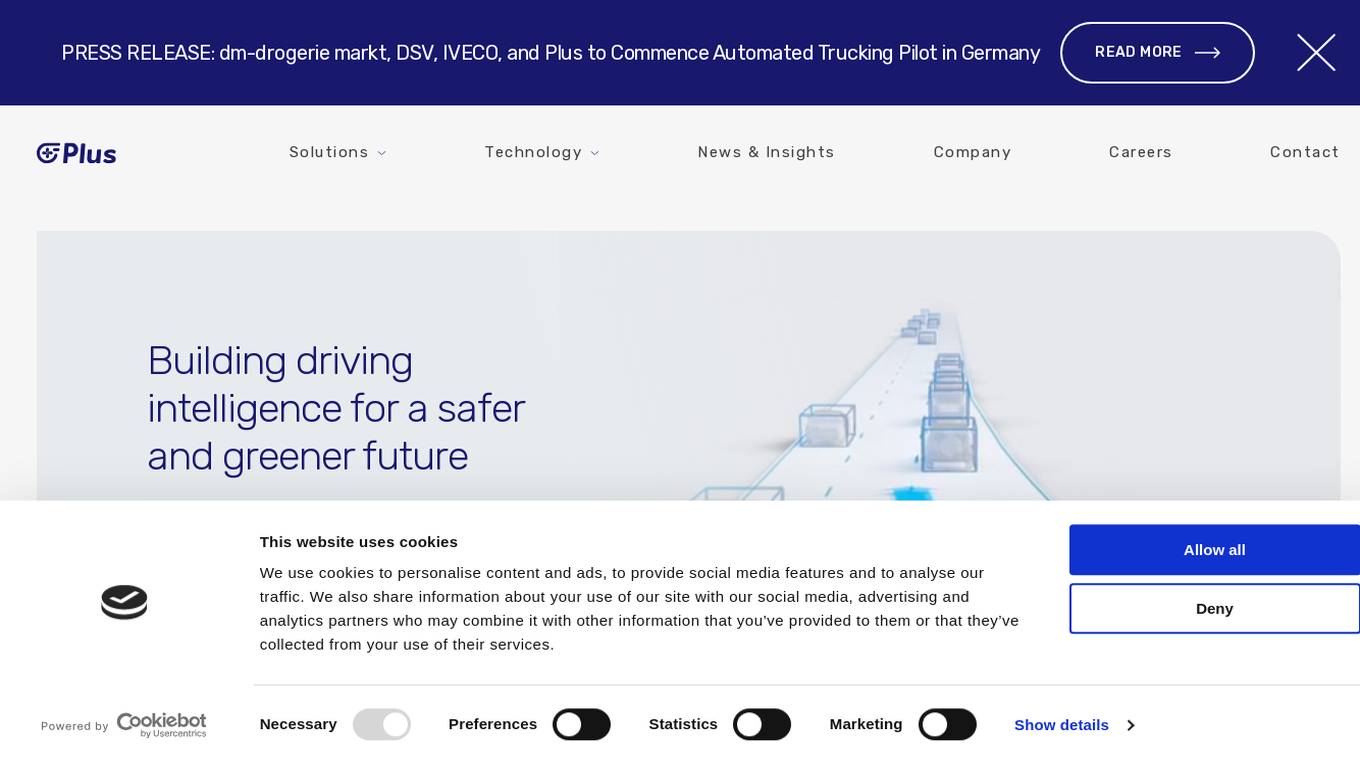
Plus
Plus is an AI-based autonomous driving software company that focuses on developing solutions for driver assist and autonomous driving technologies. The company offers a suite of autonomous driving solutions designed for integration with various hardware platforms and vehicle types, ranging from perception software to highly automated driving systems. Plus aims to transform the transportation industry by providing high-performance, safe, and affordable autonomous driving vehicles at scale.

AEye
AEye is a leading provider of software-defined lidar solutions for autonomous applications. Our 4Sight Intelligent Sensing Platform provides accurate, reliable, and real-time perception data to enable safer and more efficient navigation. AEye's lidar products are designed to meet the unique requirements of automotive, trucking, and smart infrastructure applications.
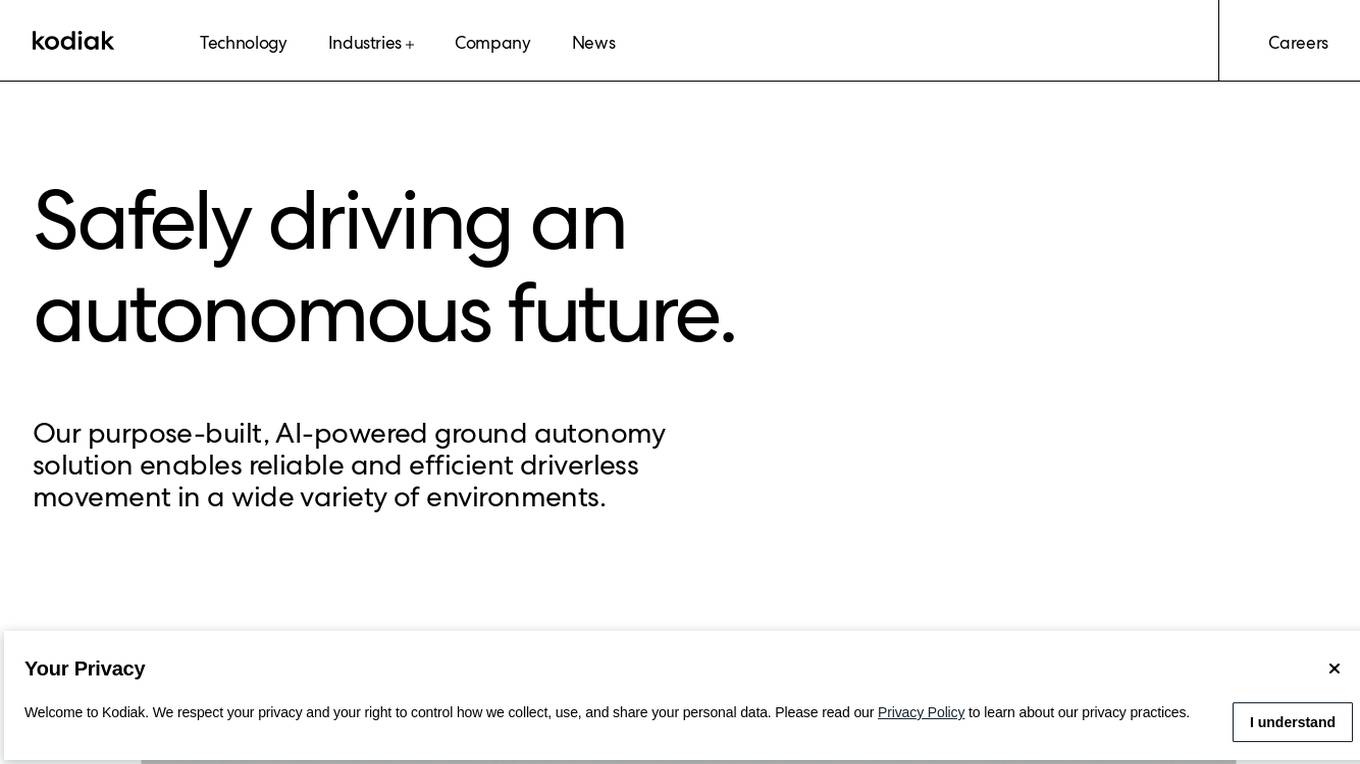
Kodiak Robotics
Kodiak Robotics is a leading company focused on driving an autonomous future through their purpose-built, AI-powered ground autonomy solution. They aim to bring autonomy to various industries by providing a turnkey solution that enables reliable and efficient driverless movement in different environments. With a focus on safety, efficiency, and innovation, Kodiak Robotics is at the forefront of transforming transportation and improving sustainability.
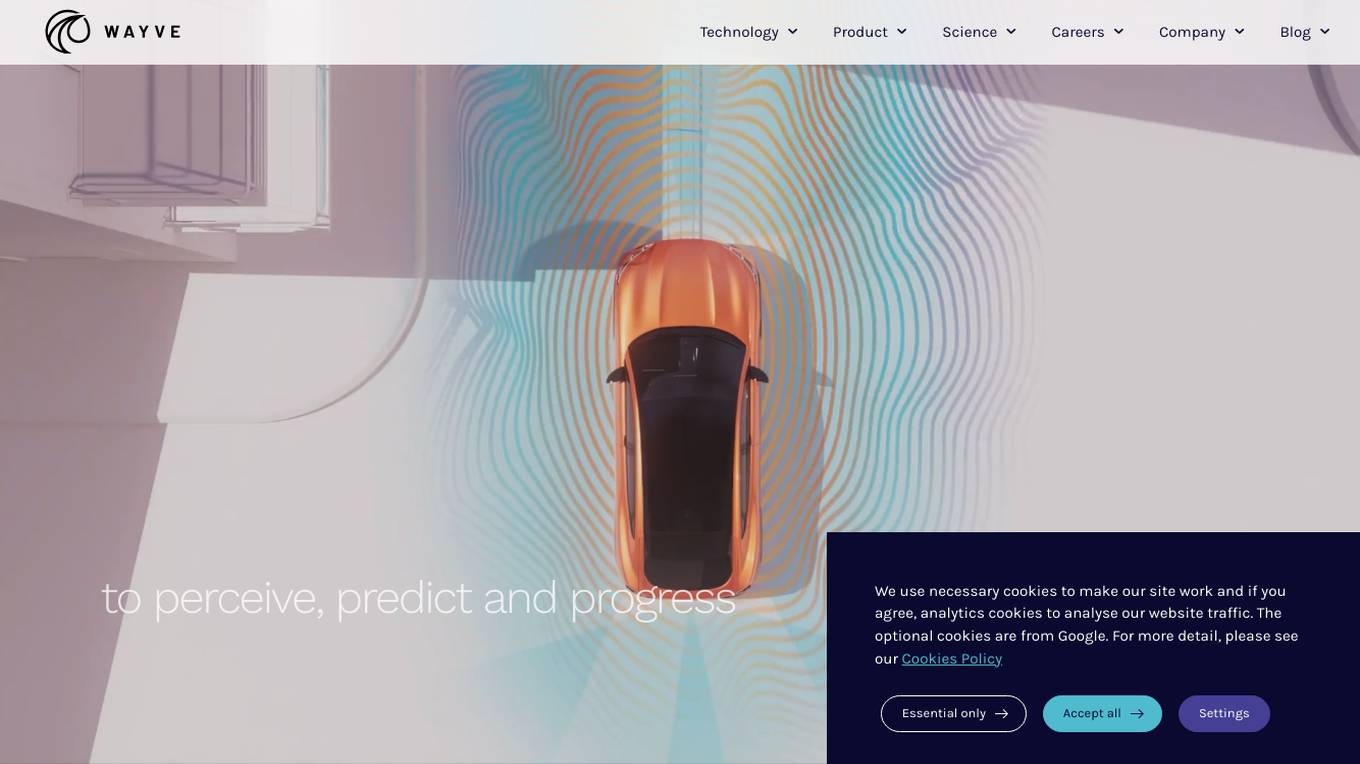
Wayve
Wayve is a pioneering AI technology company focused on advancing end-to-end autonomous driving research and developing advanced AI solutions for safer and smarter driving. Their breakthrough AI technology empowers vehicles to perceive, predict, and progress through dynamic environments, learning from human behavior to confidently navigate unexpected situations with unprecedented intuition, accuracy, and reliability. Wayve's AI Driver software equips vehicles with advanced human-like driving capabilities, designed for safety and adaptability to unseen situations without the need for HD maps. The company partners with top experts to develop commercial-scale AV2.0 technology, aiming to reshape mobility's future with generation-defining AI technology.

AEye
AEye is a company that provides software-defined lidar solutions for autonomous applications in the automotive, trucking, and smart infrastructure industries. Their 4Sight Intelligent Sensing Platform uses software-definable lidar to enhance perception, enabling early detection and supporting autonomy. AEye's lidar products are designed to provide high resolution with long-range accuracy, and they can be adapted to any application or use case in real time. The company has forged strategic partnerships with best-in-class companies around the world to expand its global capabilities and meet the growing demands for its products.
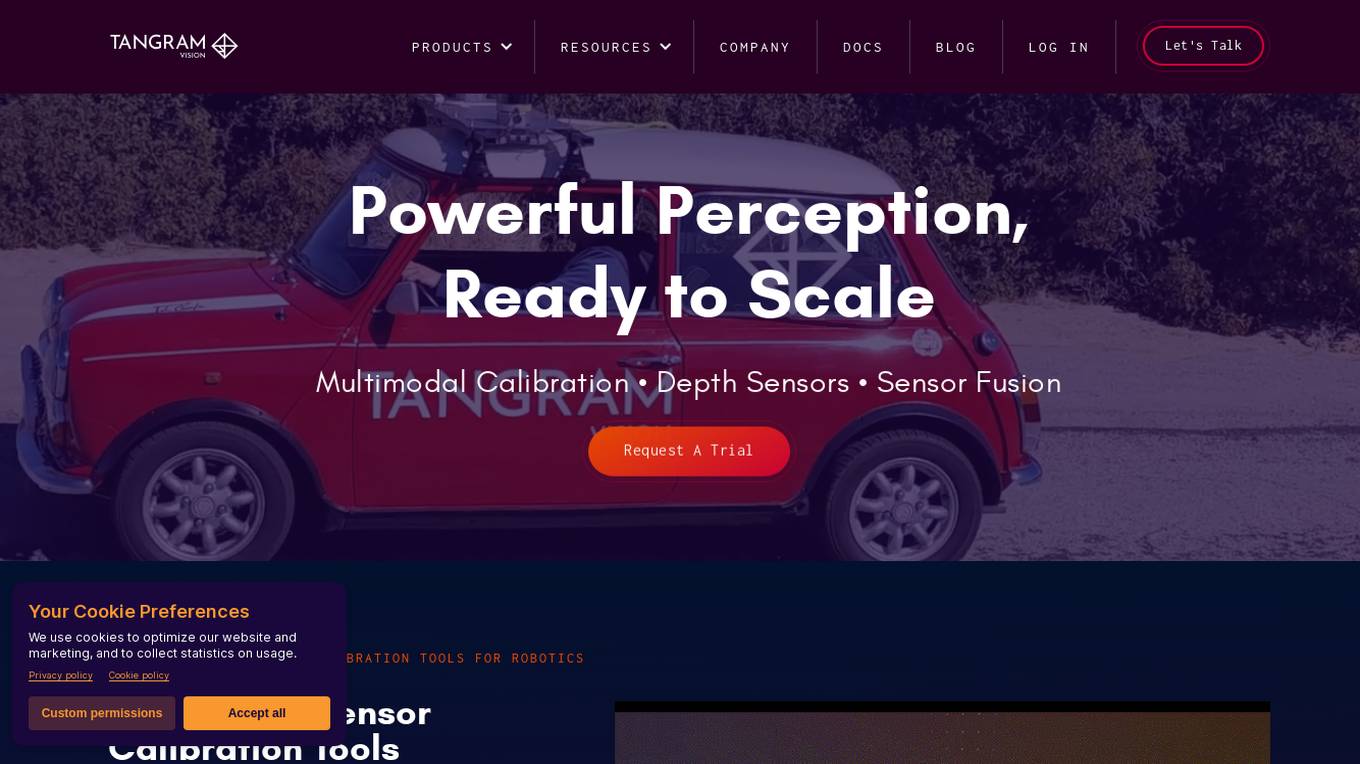
Tangram Vision
Tangram Vision is a company that provides sensor calibration tools and infrastructure for robotics and autonomous vehicles. Their products include MetriCal, a high-speed bundle adjustment software for precise sensor calibration, and AutoCal, an on-device, real-time calibration health check and adjustment tool. Tangram Vision also offers a high-resolution depth sensor called HiFi, which combines high-resolution depth data with high-powered AI capabilities. The company's mission is to accelerate the development and deployment of autonomous systems by providing the tools and infrastructure needed to ensure the accuracy and reliability of sensors.
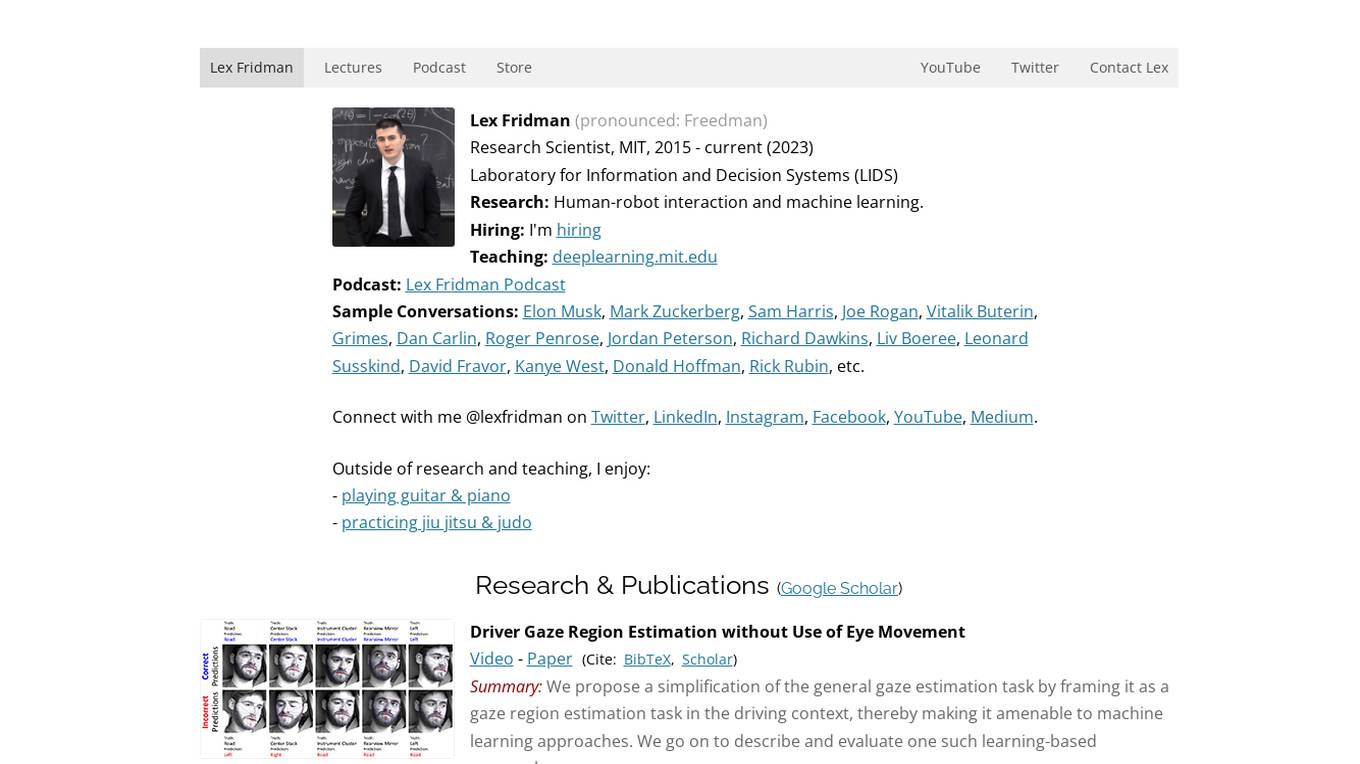
Lex Fridman
Lex Fridman is an AI tool developed by Lex Fridman, a Research Scientist at MIT, focusing on human-robot interaction and machine learning. The tool offers various resources such as podcasts, research publications, and studies related to AI-assisted driving data collection, autonomous vehicle systems, gaze estimation, and cognitive load estimation. It aims to provide insights into the safe and enjoyable interaction between humans and AI in driving scenarios.
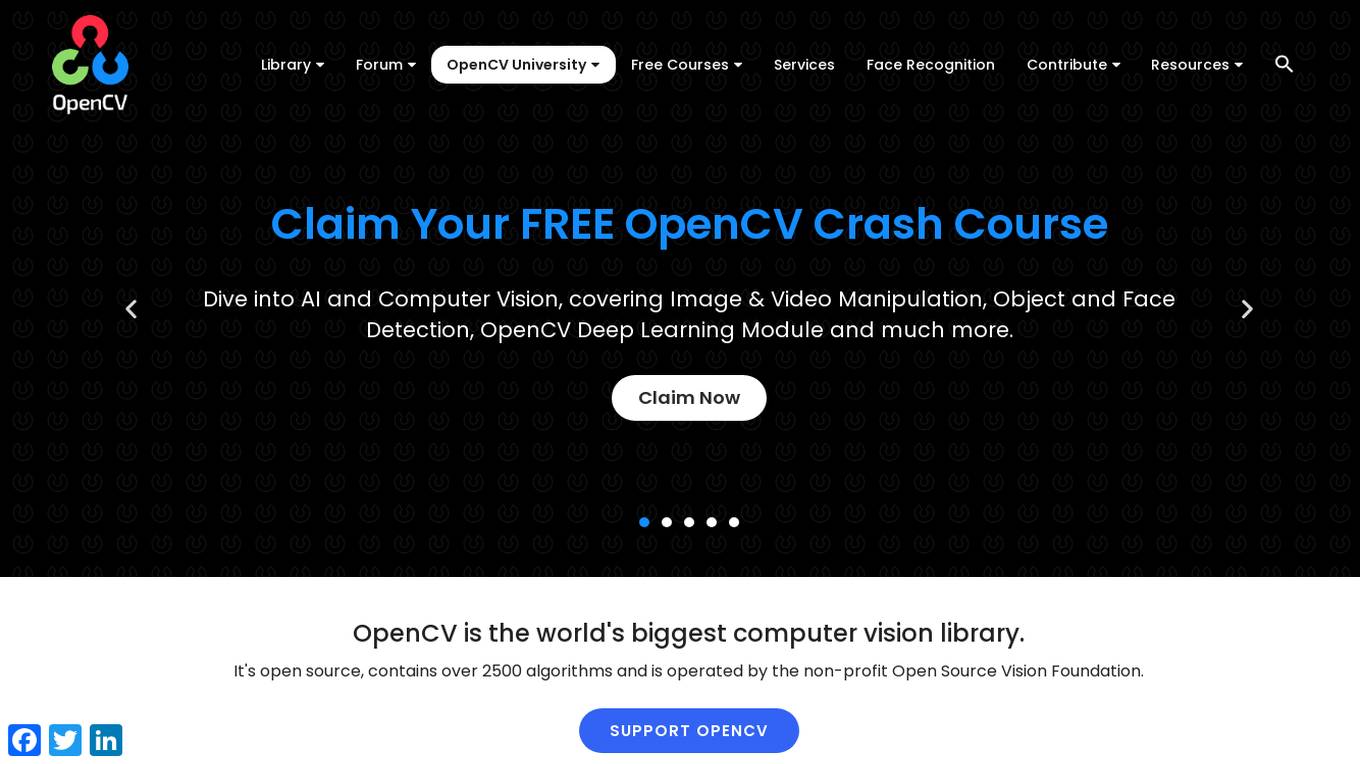
OpenCV
OpenCV is the world's largest computer vision library. It's open source, contains over 2500 algorithms and is operated by the non-profit Open Source Vision Foundation.
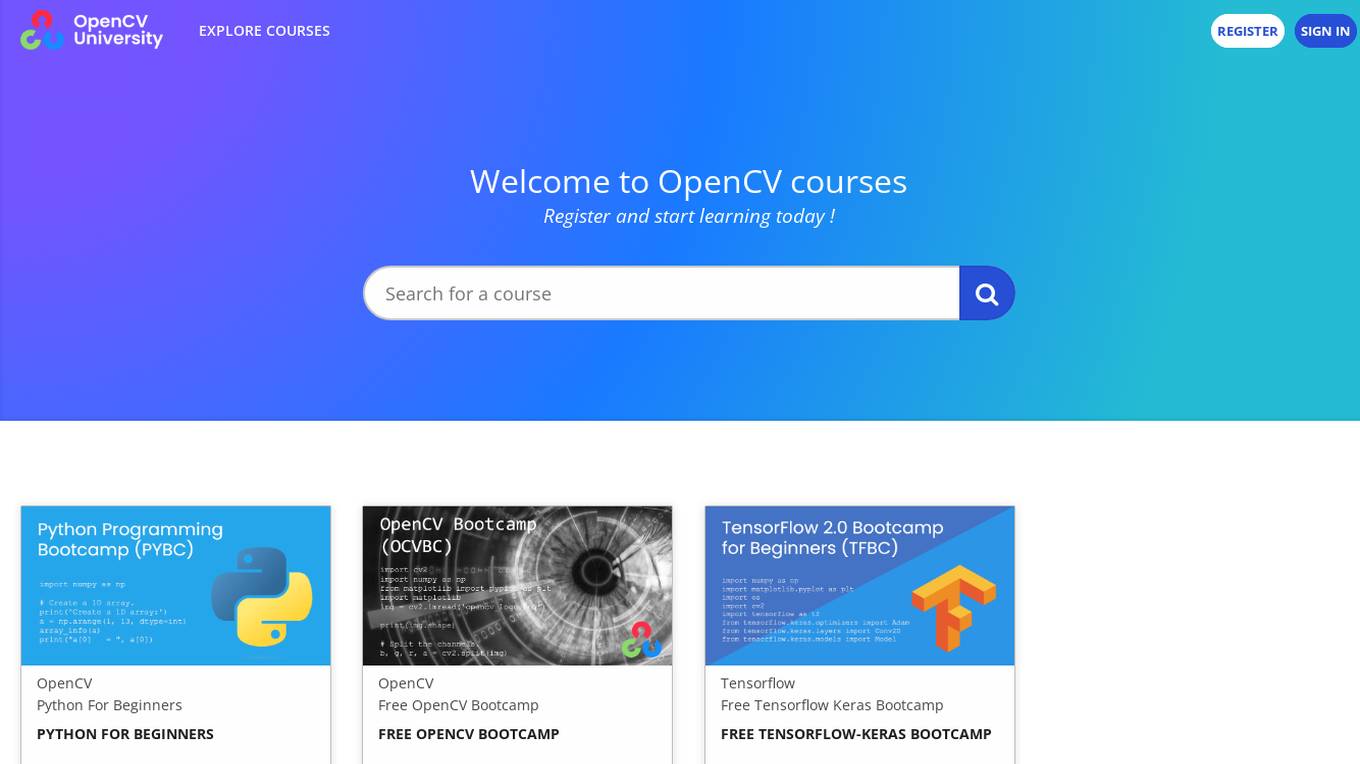
OpenCV
OpenCV is a library of programming functions mainly aimed at real-time computer vision. Originally developed by Intel, it was later supported by Willow Garage and is now maintained by Itseez. OpenCV is cross-platform and free for use under the open-source BSD license.
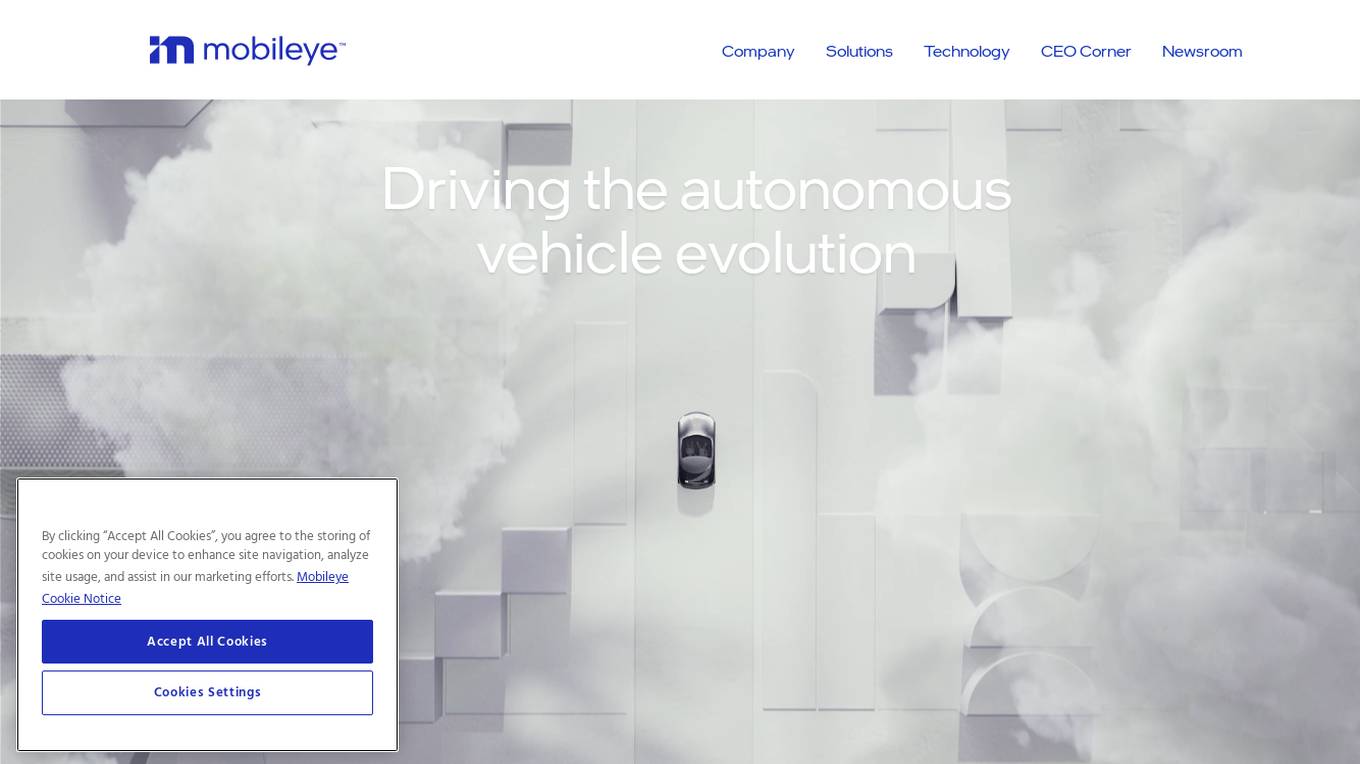
Mobileye
Mobileye is a leading company specializing in driver assist and autonomous driving technologies. With a focus on developing innovative solutions for the automotive industry, Mobileye has revolutionized driver-assist technology by leveraging camera sensors to enhance safety and efficiency in vehicles. The company offers a range of solutions, from cloud-enhanced driver-assist systems to fully autonomous driving capabilities, all designed to provide a seamless and natural driving experience. By developing both hardware and software in-house, Mobileye ensures a safe-by-design approach that prioritizes scalability and efficiency, making their technology accessible to the mass market.

Mobility Engineering
Mobility Engineering is a website that provides news, articles, and resources on the latest developments in mobility technology. The site covers a wide range of topics, including autonomous vehicles, connected cars, electric vehicles, and more. Mobility Engineering is a valuable resource for anyone interested in staying up-to-date on the latest trends in mobility technology.
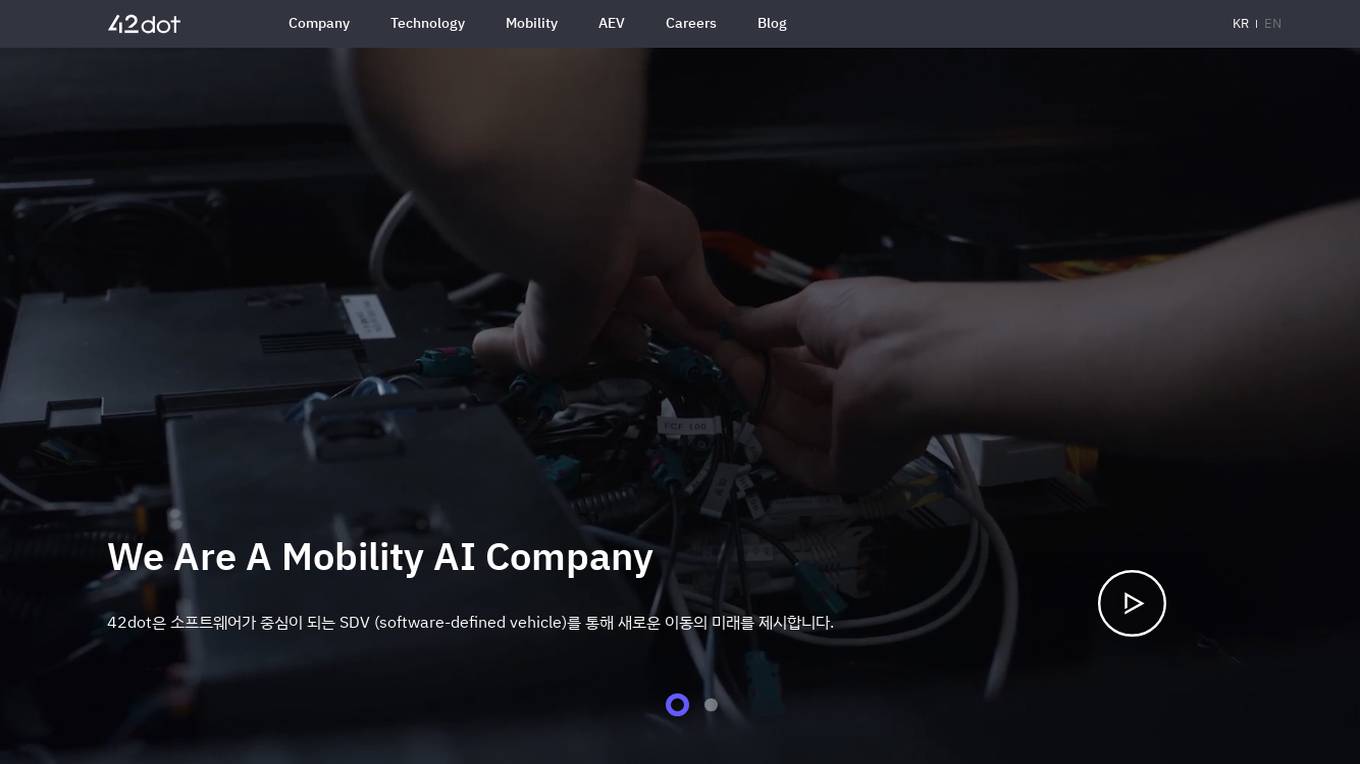
42dot
42dot is a mobility AI company that focuses on software-defined vehicles to shape the future of transportation. They use software and AI technology to solve mobility issues, aiming to create a world where everything operates autonomously and seamlessly. The company develops solutions optimized for SDVs and businesses based on software and AI, including Software-Defined Vehicle and Software-Defined Fleet. Their goal is to lead the mass adoption of autonomous mobility services through the TAP! platform and create Autonomous EVs for safer and innovative transportation experiences.
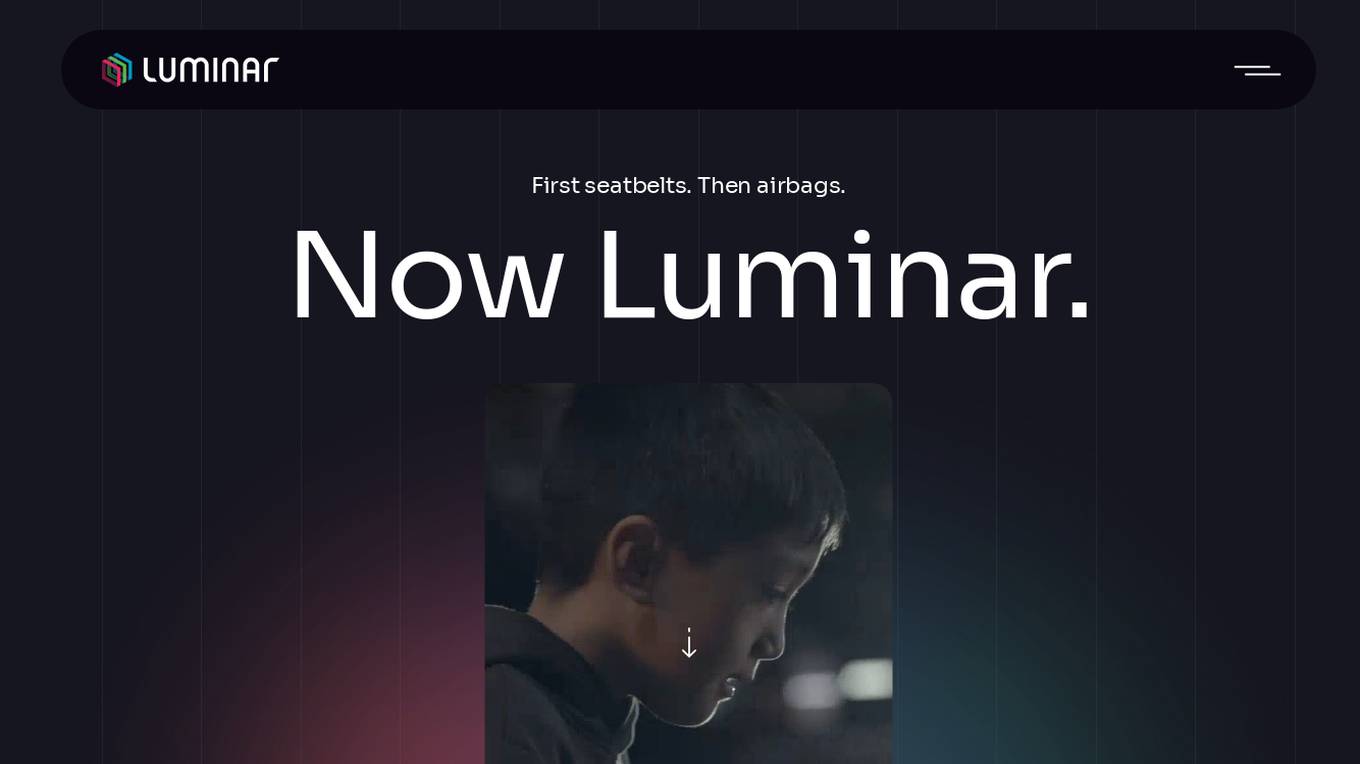
Luminar
Luminar is a leading developer of automotive lidar technology. The company's mission is to make roads safer by eliminating vehicle accidents. Luminar's lidar sensors provide cars with a detailed view of their surroundings, enabling them to make better decisions and avoid collisions. Luminar's technology is being used by a number of automakers, including Volvo, SAIC Motor, and Polestar.
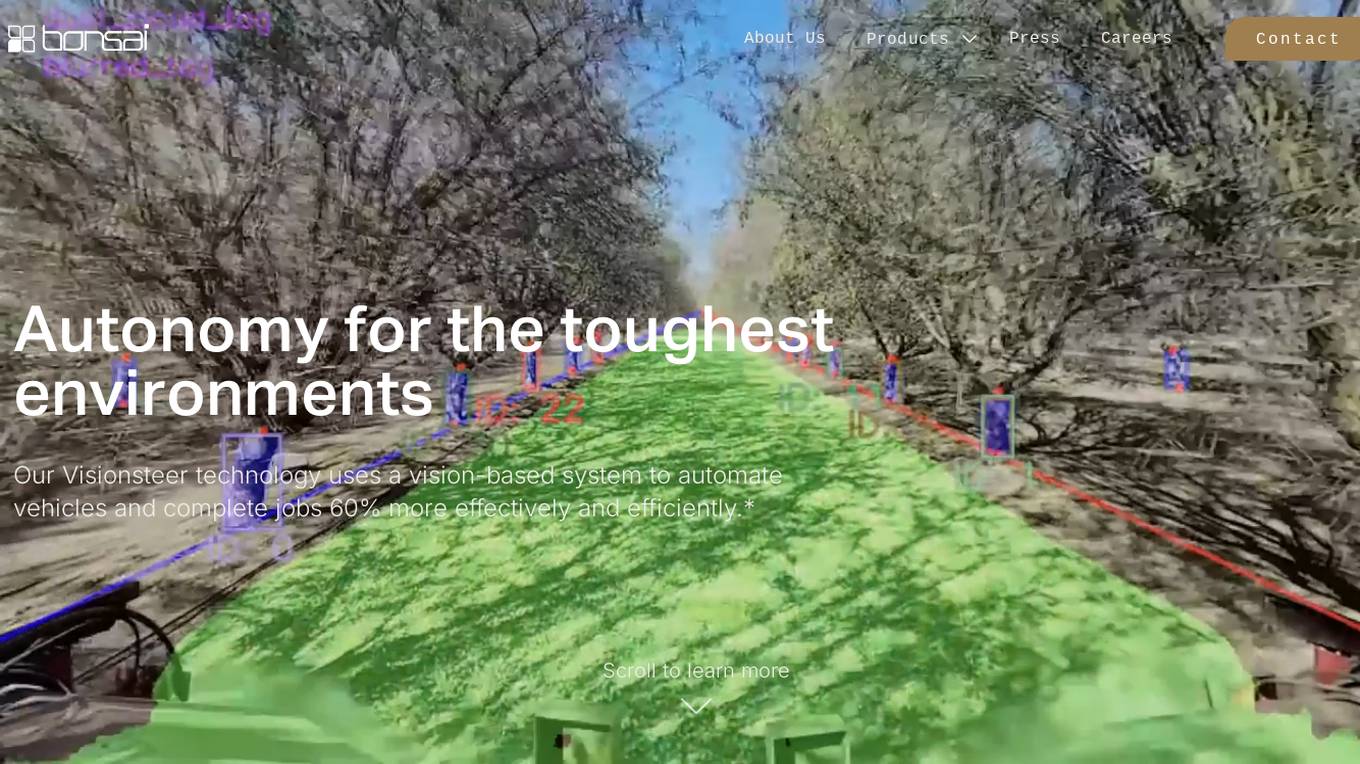
Bonsai Robotics
Bonsai Robotics is an AI-first company providing vision-based autonomous solutions for harsh environments in agriculture. Their technology enables autonomy and automation without the need for GPS or cellular connections, making it ideal for off-road areas like orchards, vineyards, and mines. Bonsai's solutions are designed to increase speed, reliability, and efficiency for growers and manufacturers, offering state-of-the-art automation technology for job planning, vehicle control, and data insights.
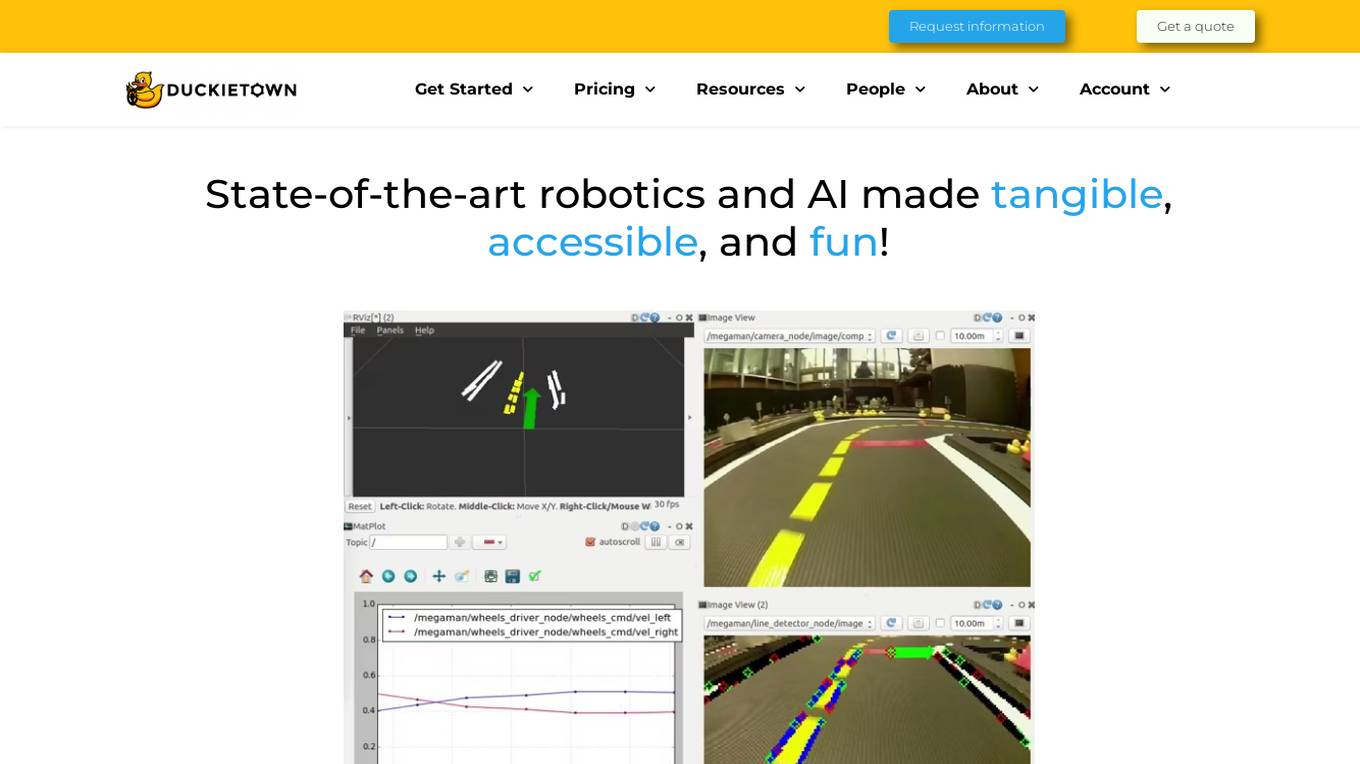
Duckietown
Duckietown is a platform for delivering cutting-edge robotics and AI learning experiences. It offers teaching resources to instructors, hands-on activities to learners, an accessible research platform to researchers, and a state-of-the-art ecosystem for professional training. Duckietown's mission is to make robotics and AI education state-of-the-art, hands-on, and accessible to all.
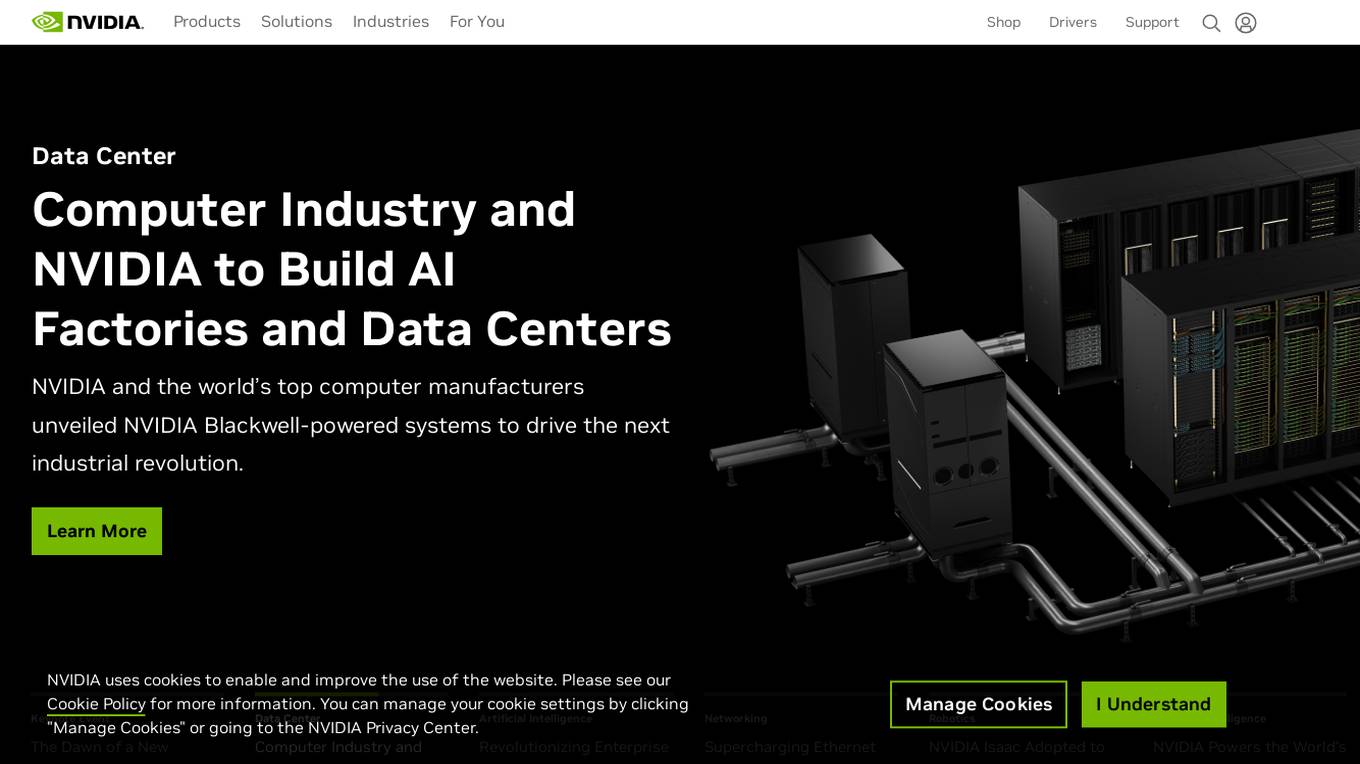
NVIDIA
NVIDIA is a world leader in artificial intelligence computing, providing hardware and software solutions for gaming, entertainment, data centers, edge computing, and more. Their platforms like Jetson and Isaac enable the development and deployment of AI-powered autonomous machines. NVIDIA's AI applications span various industries, from healthcare to manufacturing, and their technology is transforming the world's largest industries and impacting society profoundly.
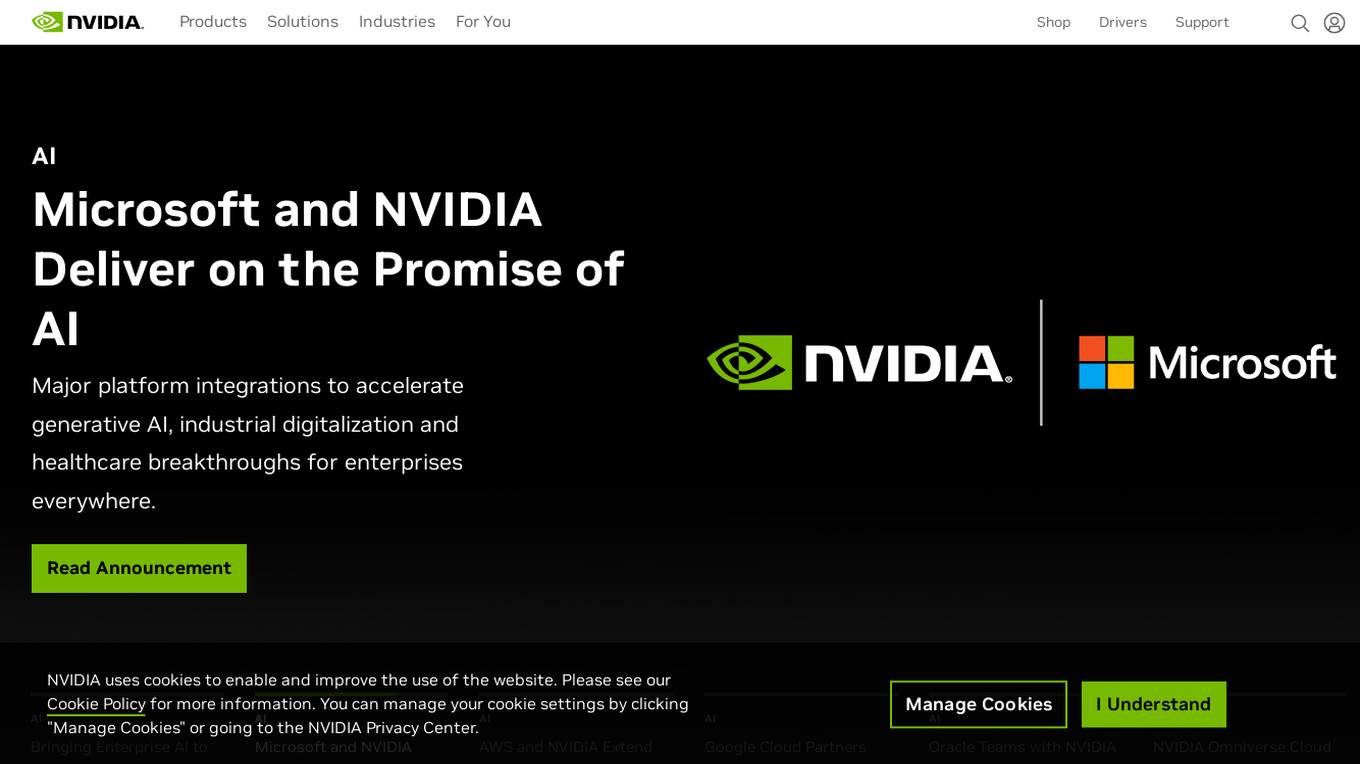
NVIDIA
NVIDIA is a world leader in artificial intelligence computing. The company's products and services are used by businesses and governments around the world to develop and deploy AI applications. NVIDIA's AI platform includes hardware, software, and tools that make it easy to build and train AI models. The company also offers a range of cloud-based AI services that make it easy to deploy and manage AI applications. NVIDIA's AI platform is used in a wide variety of industries, including healthcare, manufacturing, retail, and transportation. The company's AI technology is helping to improve the efficiency and accuracy of a wide range of tasks, from medical diagnosis to product design.
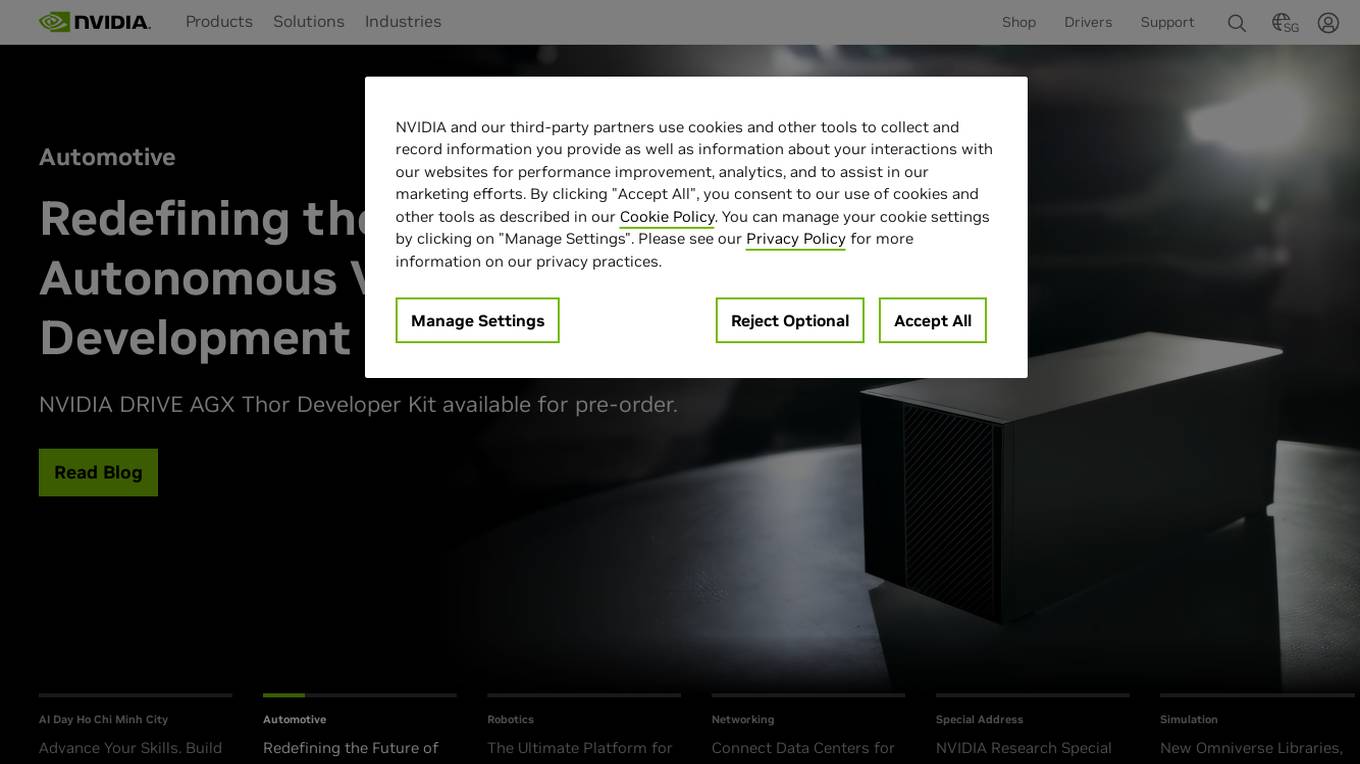
NVIDIA
NVIDIA is a world leader in artificial intelligence computing, providing solutions for cloud services, data center, embedded systems, gaming, and creating graphics cards and GPUs. They offer a wide range of products and services, including AI-driven platforms for life sciences research, end-to-end AI platforms, generative AI deployment, advanced simulation integration, and more. NVIDIA focuses on modernizing data centers with AI and accelerated computing, offering enterprise AI platforms, supercomputers, advanced networking solutions, and professional workstations. They also provide software tools for AI development, data center management, GPU monitoring, and more.
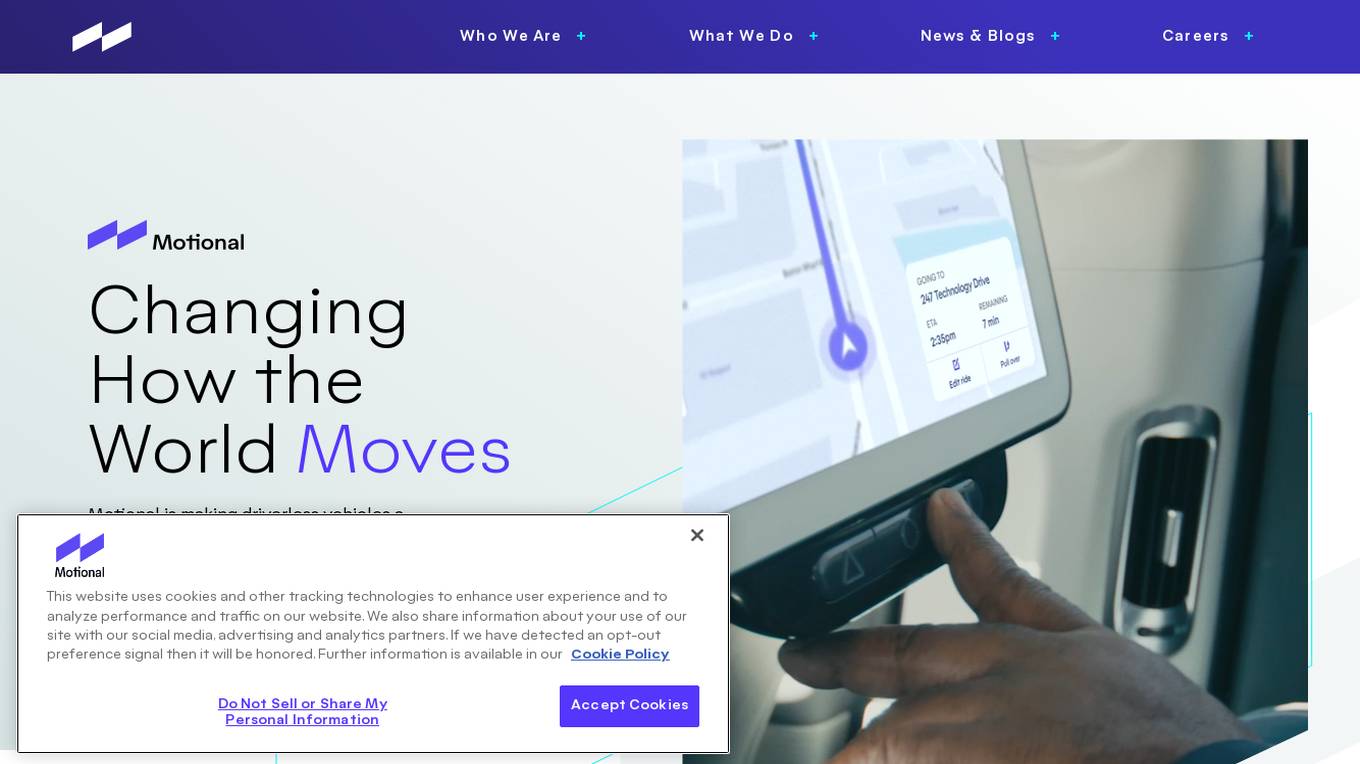
Motional
Motional is a company that is developing driverless technology and autonomous vehicles. They are working to make driverless vehicles a safe, reliable, and accessible reality. Motional's all-electric IONIQ 5 robotaxis are now available to public riders in Las Vegas. The company has a strong commitment to safety and is constantly developing new technologies to improve the safety of its vehicles. Motional is also working to make driverless vehicles more accessible by partnering with ride-hail and delivery services.
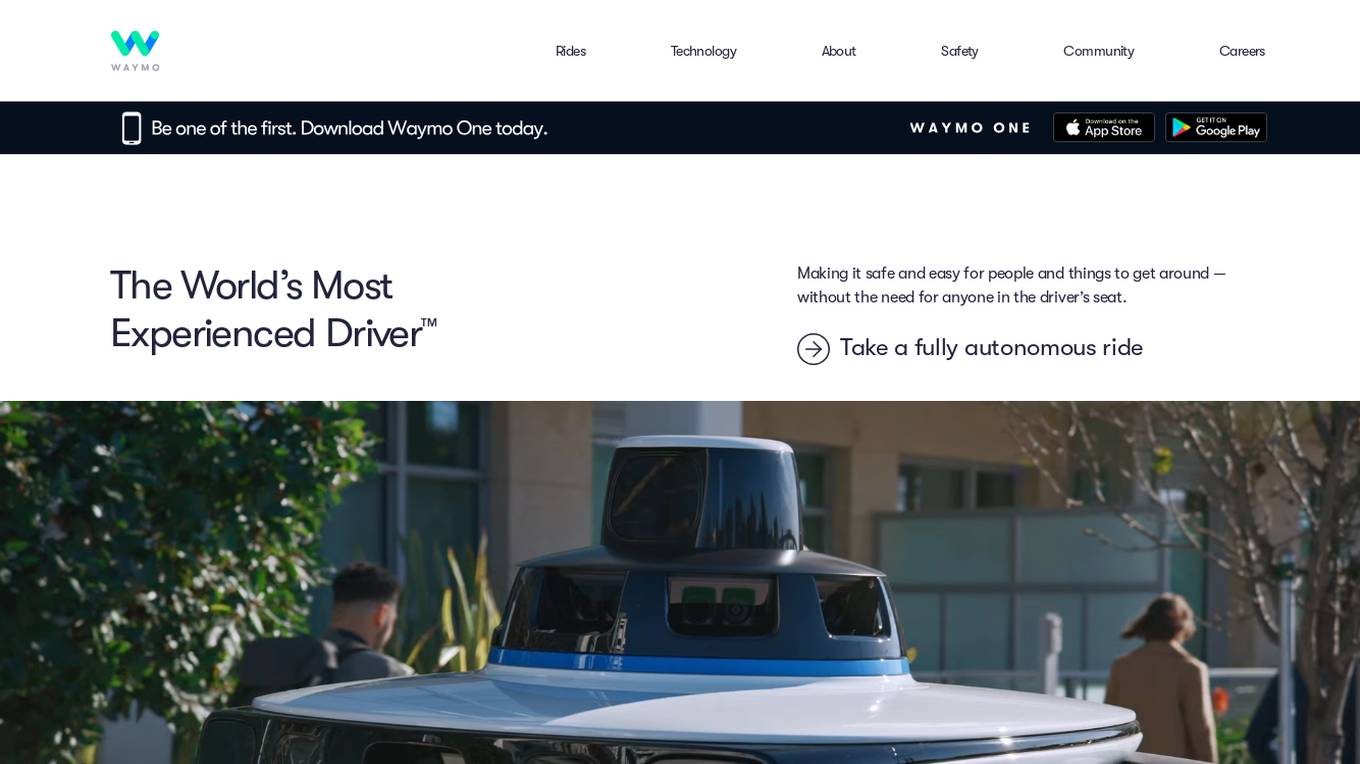
Waymo
Waymo is a self-driving car company that develops autonomous vehicles and ride-hailing services. The company's mission is to make it safe and easy for people and things to get where they're going. Waymo's self-driving cars have driven over 20 billion miles on public roads and are considered to be the most experienced autonomous vehicles in the world. Waymo's ride-hailing service, Waymo One, is the world's first fully autonomous ride-hailing service. Waymo One is currently available in Phoenix, San Francisco, Los Angeles, and Austin.
6 - Open Source Tools
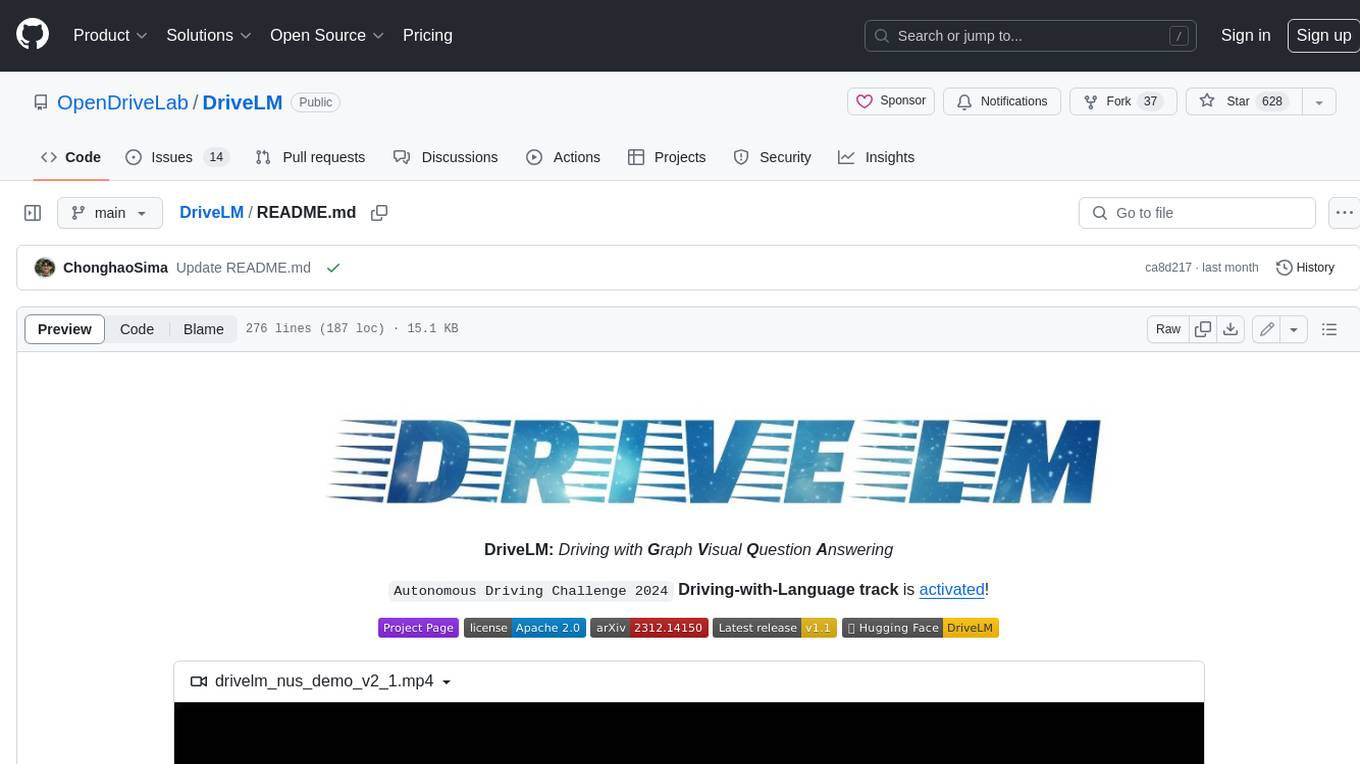
DriveLM
DriveLM is a multimodal AI model that enables autonomous driving by combining computer vision and natural language processing. It is designed to understand and respond to complex driving scenarios using visual and textual information. DriveLM can perform various tasks related to driving, such as object detection, lane keeping, and decision-making. It is trained on a massive dataset of images and text, which allows it to learn the relationships between visual cues and driving actions. DriveLM is a powerful tool that can help to improve the safety and efficiency of autonomous vehicles.
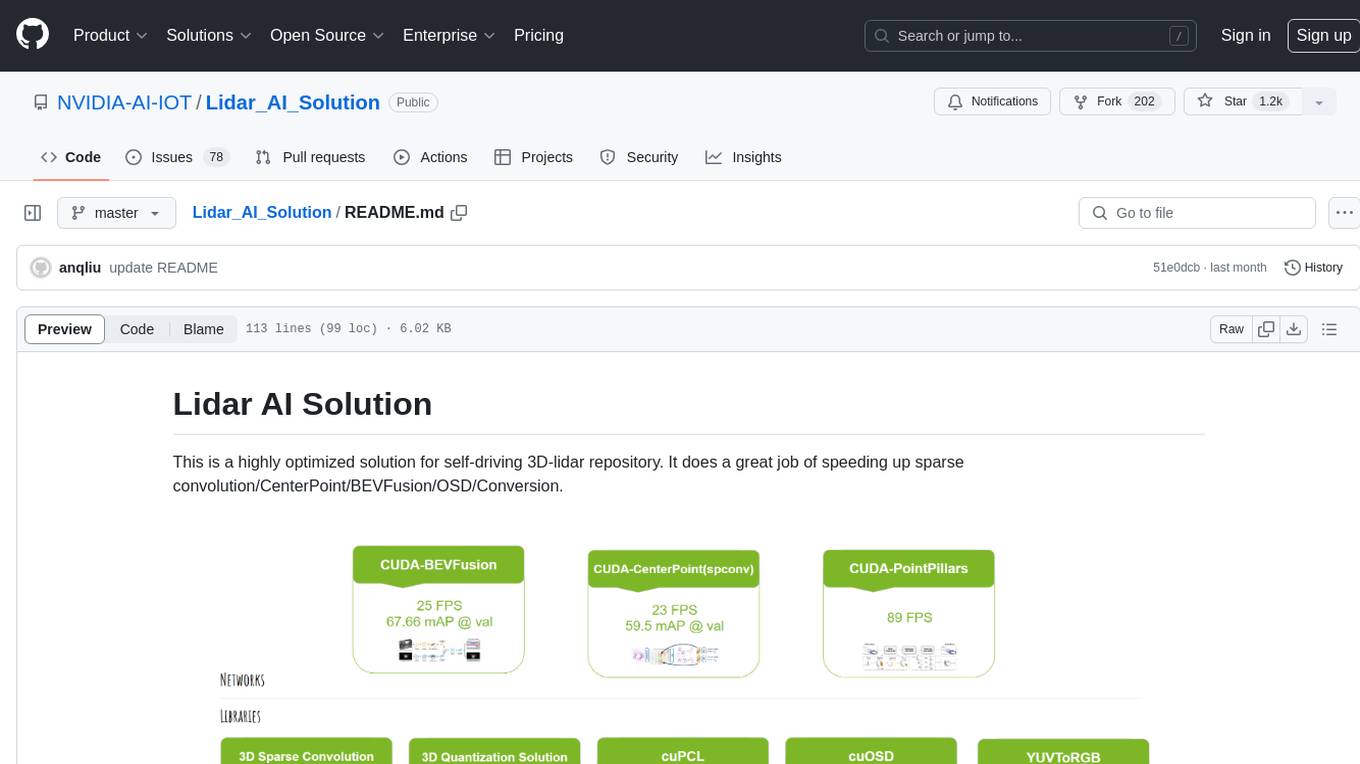
Lidar_AI_Solution
Lidar AI Solution is a highly optimized repository for self-driving 3D lidar, providing solutions for sparse convolution, BEVFusion, CenterPoint, OSD, and Conversion. It includes CUDA and TensorRT implementations for various tasks such as 3D sparse convolution, BEVFusion, CenterPoint, PointPillars, V2XFusion, cuOSD, cuPCL, and YUV to RGB conversion. The repository offers easy-to-use solutions, high accuracy, low memory usage, and quantization options for different tasks related to self-driving technology.
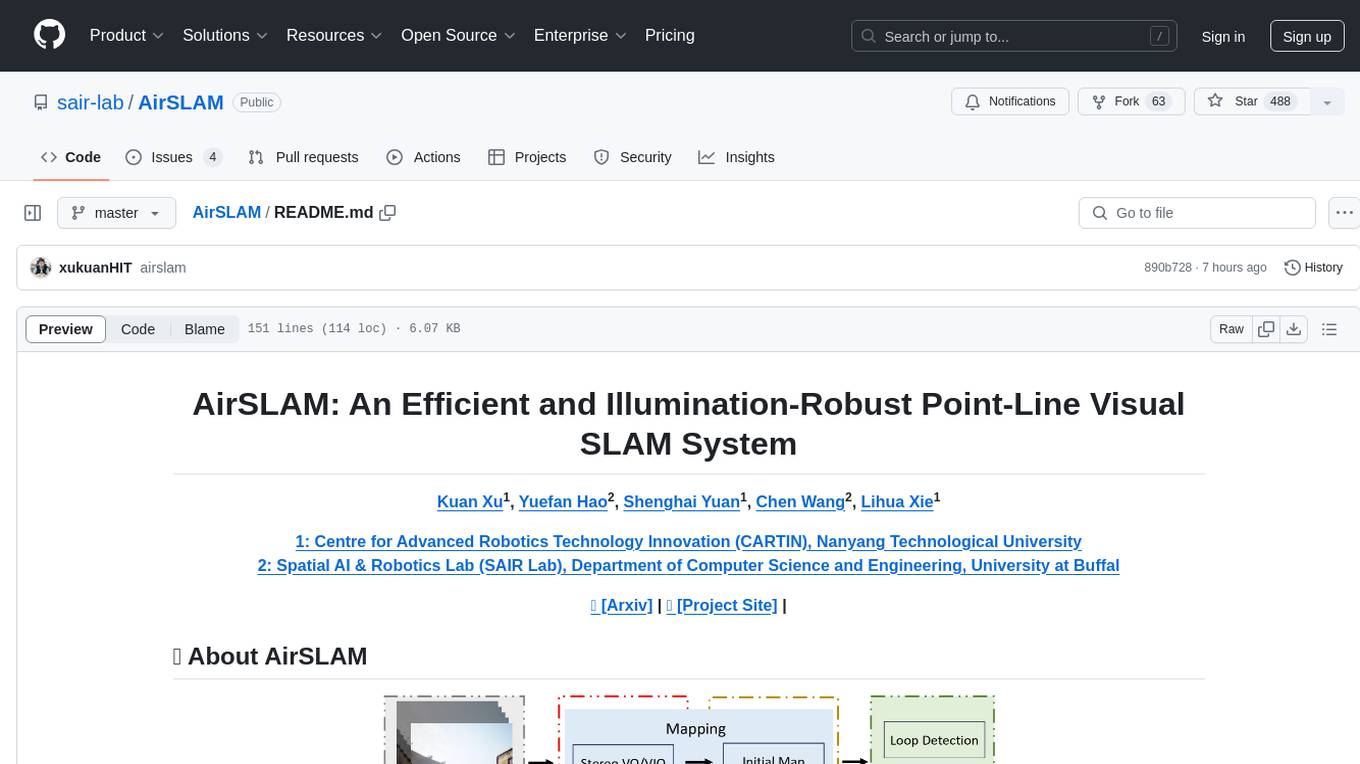
AirSLAM
AirSLAM is an efficient visual SLAM system designed to tackle short-term and long-term illumination challenges. It combines deep learning techniques with traditional optimization methods, featuring a unified CNN for keypoint and structural line extraction. The system includes a relocalization pipeline for map reuse, accelerated using C++ and NVIDIA TensorRT. Outperforming other SLAM systems in challenging environments, it runs at 73Hz on PC and 40Hz on embedded platforms.
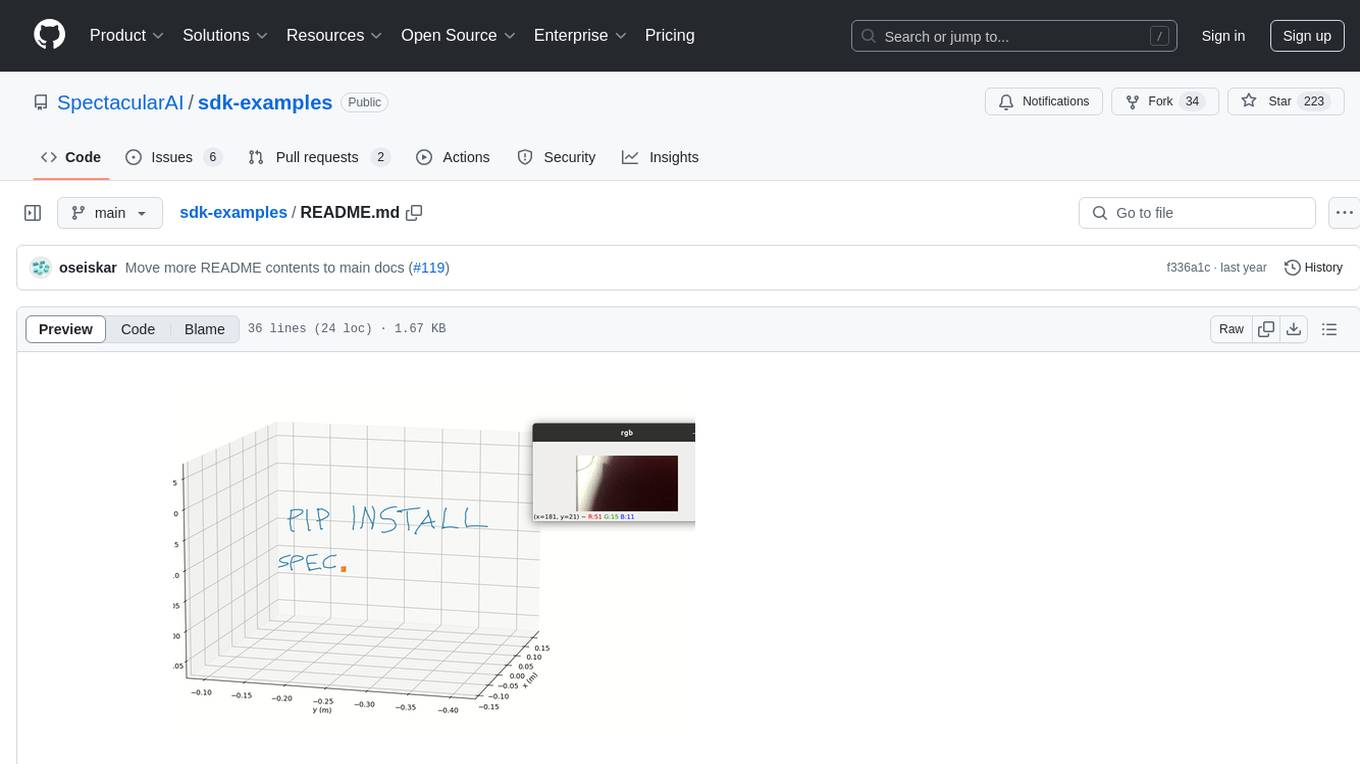
sdk-examples
Spectacular AI SDK fuses data from cameras and IMU sensors to output an accurate 6-degree-of-freedom pose of a device, enabling Visual-Inertial SLAM for tracking robots and vehicles, as well as Augmented, Mixed, and Virtual Reality. The SDK includes a Mapping API for real-time and offline 3D reconstruction use cases.

awesome-and-novel-works-in-slam
This repository contains a curated list of cutting-edge works in Simultaneous Localization and Mapping (SLAM). It includes research papers, projects, and tools related to various aspects of SLAM, such as 3D reconstruction, semantic mapping, novel algorithms, large-scale mapping, and more. The repository aims to showcase the latest advancements in SLAM technology and provide resources for researchers and practitioners in the field.
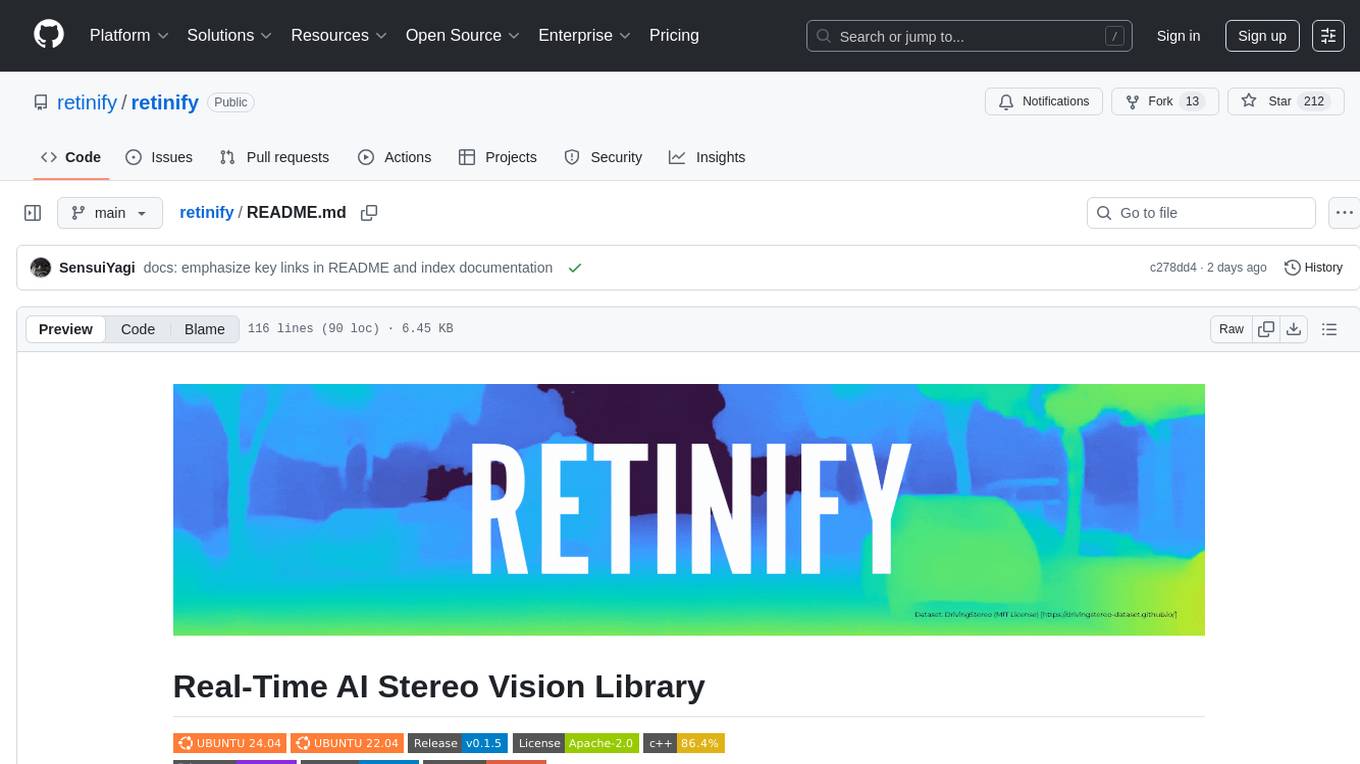
retinify
Retinify is an advanced AI-powered stereo vision library designed for robotics, enabling real-time, high-precision 3D perception by leveraging GPU and NPU acceleration. It is open source under Apache-2.0 license, offers high precision 3D mapping and object recognition, runs computations on GPU for fast performance, accepts stereo images from any rectified camera setup, is cost-efficient using minimal hardware, and has minimal dependencies on CUDA Toolkit, cuDNN, and TensorRT. The tool provides a pipeline for stereo matching and supports various image data types independently of OpenCV.
20 - OpenAI Gpts
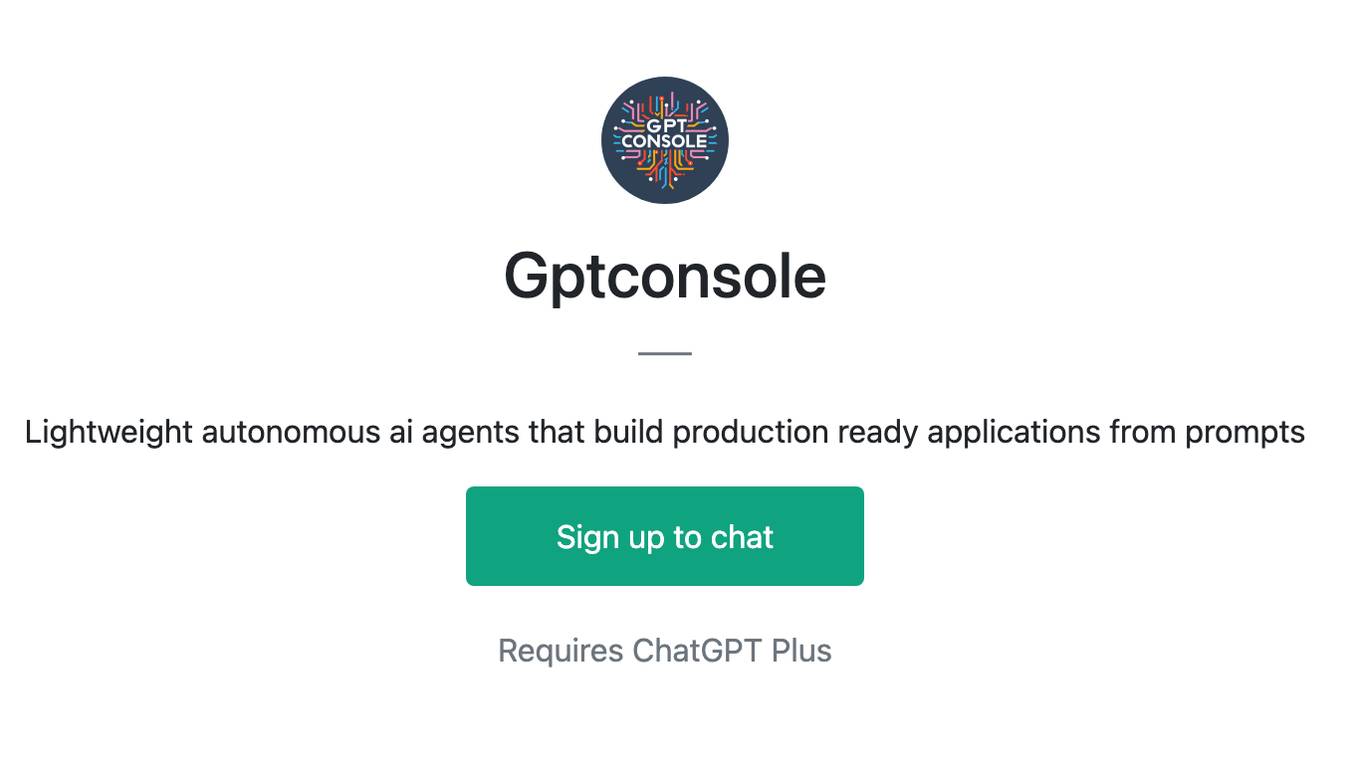
Gptconsole
Lightweight autonomous ai agents that build production ready applications from prompts
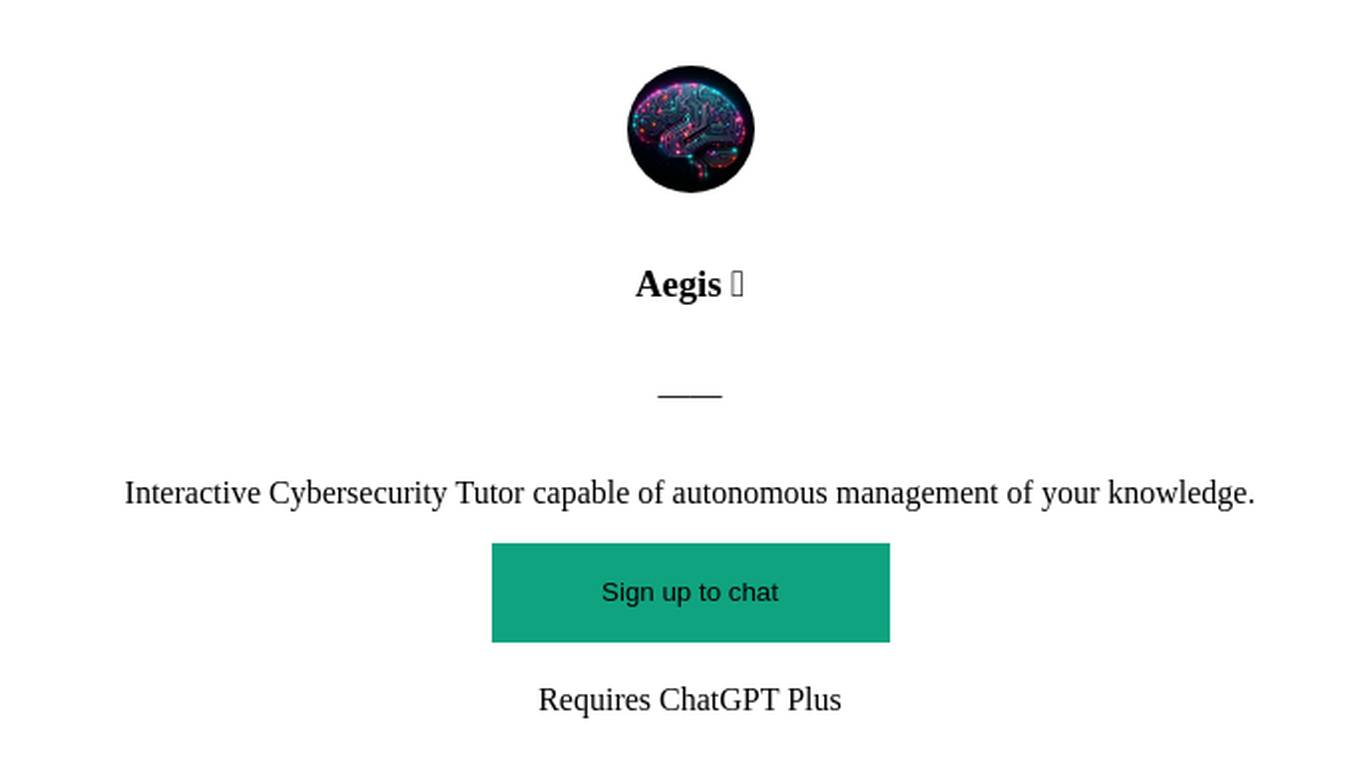
Aegis ⛨
Interactive Cybersecurity Tutor capable of autonomous management of your knowledge.

INSIGHT Business SIM
The future of business education: Generate and test ideas in a complex global market simulation, populated by autonomous agents. Powered by the MANNS engine for unparalleled entity autonomy and simulated market forces
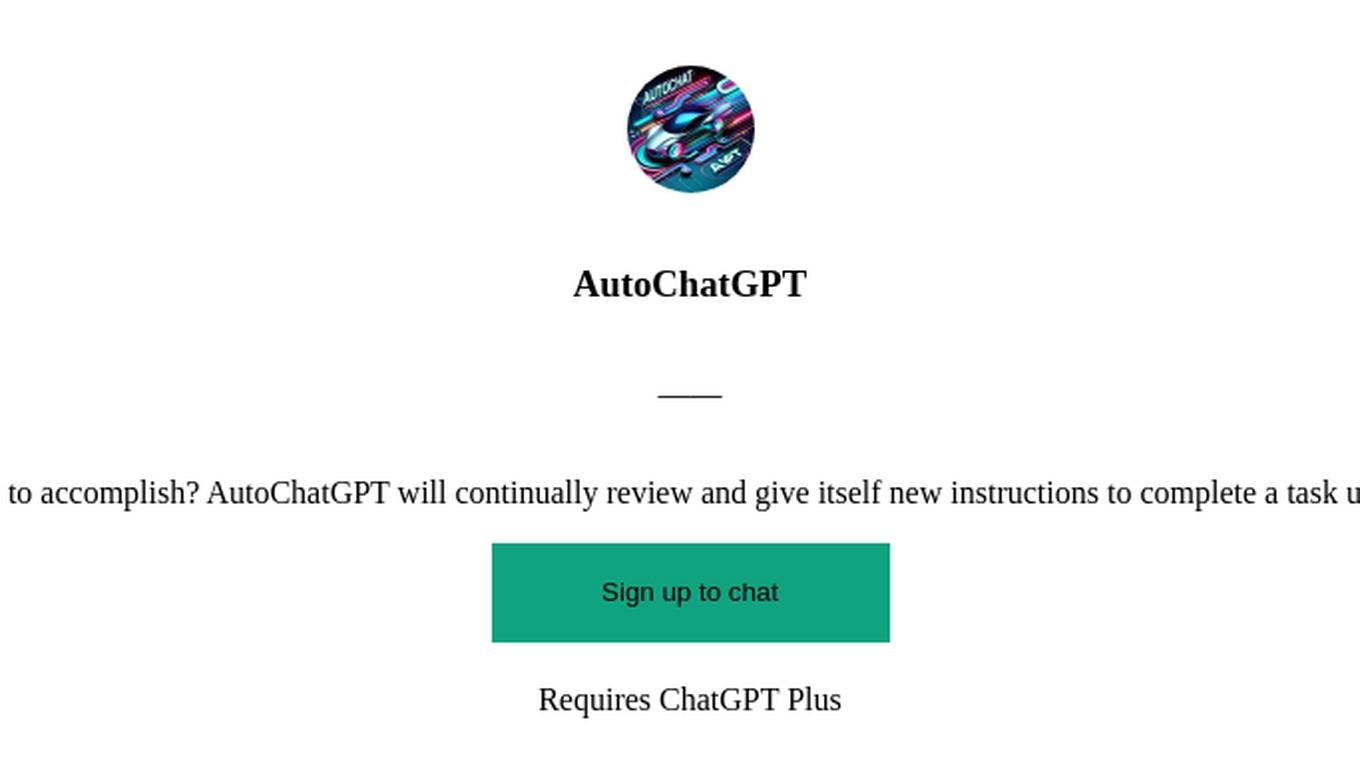
AutoChatGPT
Have a large task to accomplish? AutoChatGPT will continually review and give itself new instructions to complete a task using expert agents.
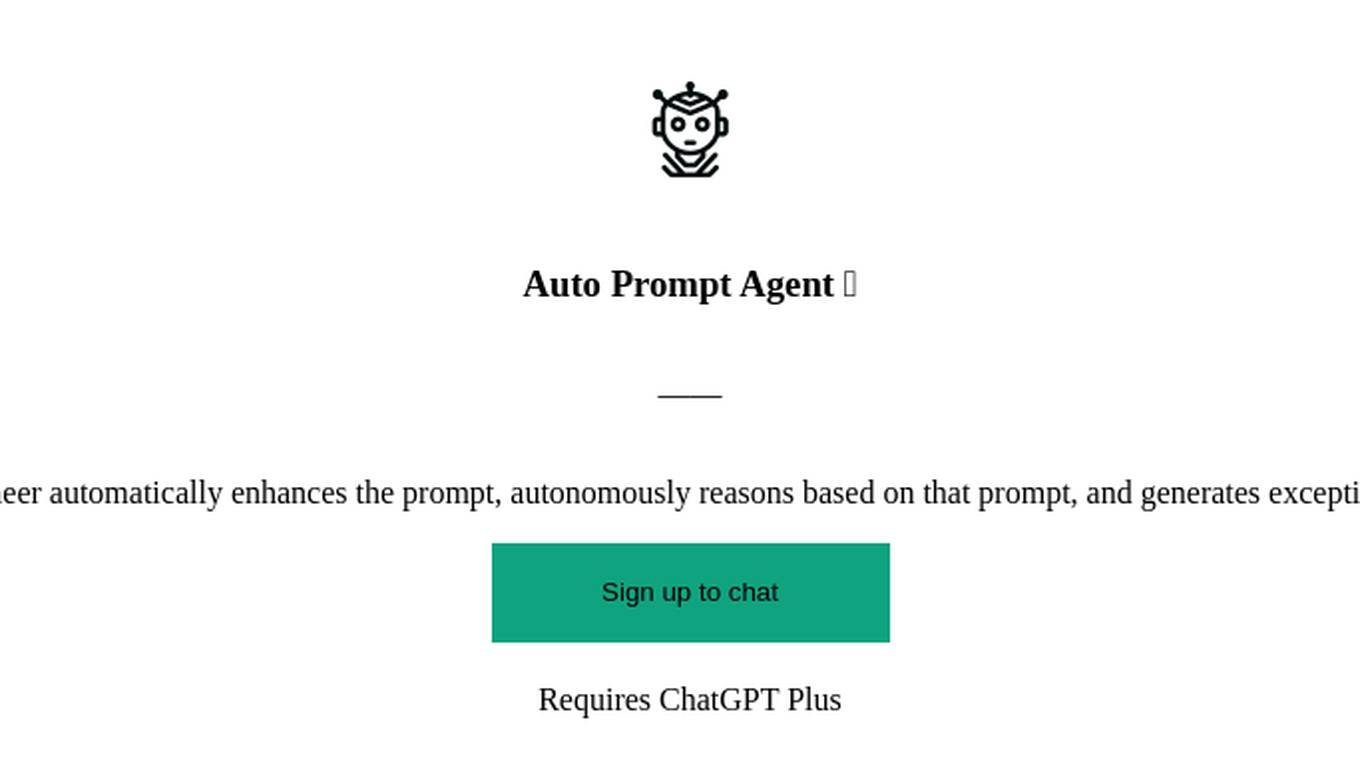
Auto Prompt Agent 🚩
Prompt Engineer automatically enhances the prompt, autonomously reasons based on that prompt, and generates exceptional responses.

Professor Arup Das Ethics Coach
Supportive and engaging AI Ethics tutor, providing practical tips and career guidance.
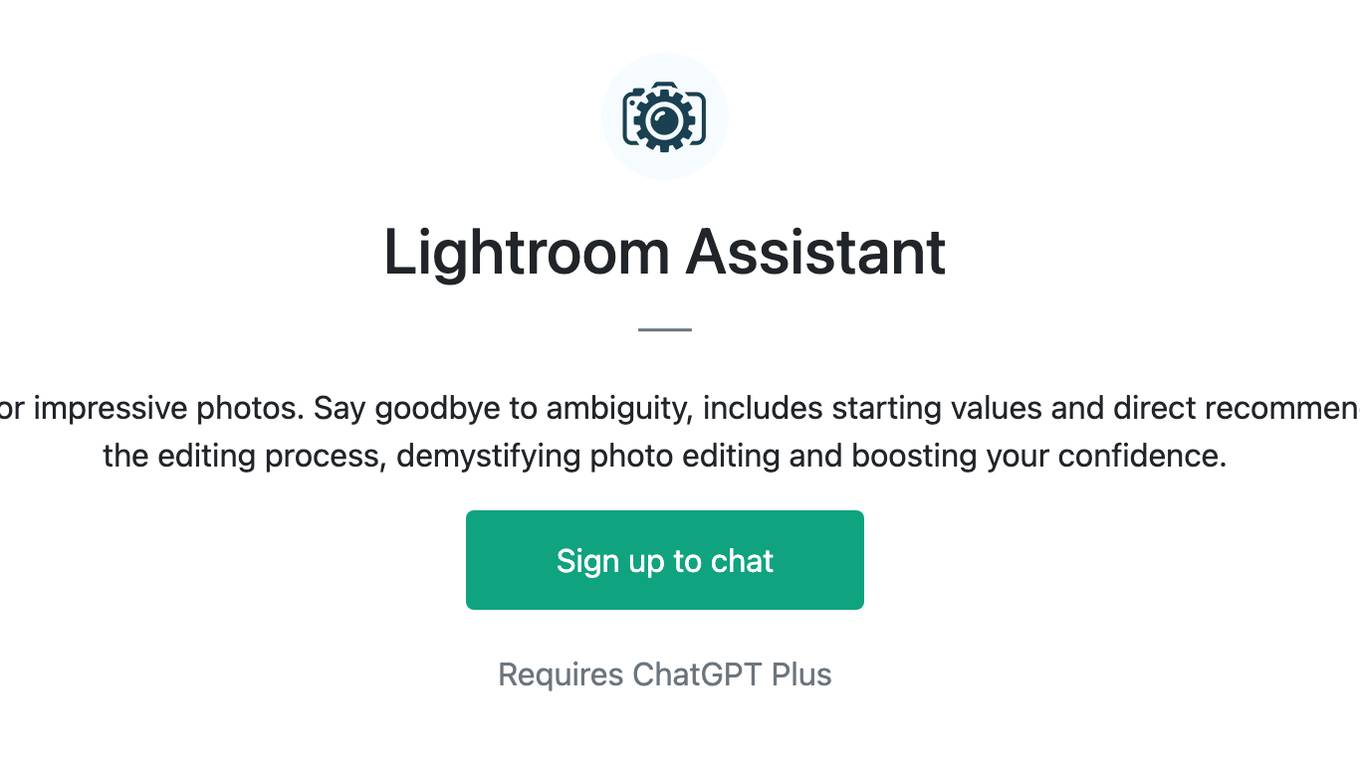
Lightroom Assistant
Detailed, step-by-step Lightroom guidance for impressive photos. Say goodbye to ambiguity, includes starting values and direct recommendations. Autonomously guides you through the editing process, demystifying photo editing and boosting your confidence.
